Words and phrases
Personal account.
- Access or purchase personal subscriptions
- Get our newsletter
- Save searches
- Set display preferences

Institutional access
Sign in with library card
Sign in with username / password
Recommend to your librarian
Institutional account management
Sign in as administrator on Oxford Academic
travel verb
- Hide all quotations
What does the verb travel mean?
There are 22 meanings listed in OED's entry for the verb travel , two of which are labelled obsolete. See ‘Meaning & use’ for definitions, usage, and quotation evidence.
travel has developed meanings and uses in subjects including
How common is the verb travel ?
How is the verb travel pronounced, british english, u.s. english, where does the verb travel come from.
Earliest known use
Middle English
The earliest known use of the verb travel is in the Middle English period (1150—1500).
OED's earliest evidence for travel is from around 1300, in St. Augustine .
travel is a variant or alteration of another lexical item.
Etymons: travail v.
Nearby entries
- travailously, adv. a1382–1881
- travail pain, n. 1662–
- travail pang, n. 1652–
- travailsome, adj. 1549–
- travale, n. 1798–1876
- travature, n. 1730
- travaux préparatoires, n. 1880–
- trave, n. c1405–
- trave harness, n. 1839
- travel, n. a1400–
- travel, v. c1300–
- travel agency, n. 1898–
- travel agent, n. 1885–
- travel allowance, n. 1835–
- travelator, n. 1955–
- travel brochure, n. 1908–
- travel bug, n. 1907–
- travel bureau, n. 1884–
- travel card, n. 1916–
- travel centre | travel center, n. 1883–
- travel document, n. 1892–
Thank you for visiting Oxford English Dictionary
To continue reading, please sign in below or purchase a subscription. After purchasing, please sign in below to access the content.
Meaning & use
Pronunciation, compounds & derived words, entry history for travel, v..
travel, v. was revised in March 2020.
travel, v. was last modified in September 2024.
oed.com is a living text, updated every three months. Modifications may include:
- further revisions to definitions, pronunciation, etymology, headwords, variant spellings, quotations, and dates;
- new senses, phrases, and quotations.
Revisions and additions of this kind were last incorporated into travel, v. in September 2024.
Earlier versions of this entry were published in:
OED First Edition (1914)
- Find out more
OED Second Edition (1989)
- View travel, v. in OED Second Edition
Please submit your feedback for travel, v.
Please include your email address if you are happy to be contacted about your feedback. OUP will not use this email address for any other purpose.
Citation details
Factsheet for travel, v., browse entry.

Art & Culture Travel Blog
History of travelling: how people started to travel.
- Tea Gudek Šnajdar
- Cultural Tourism
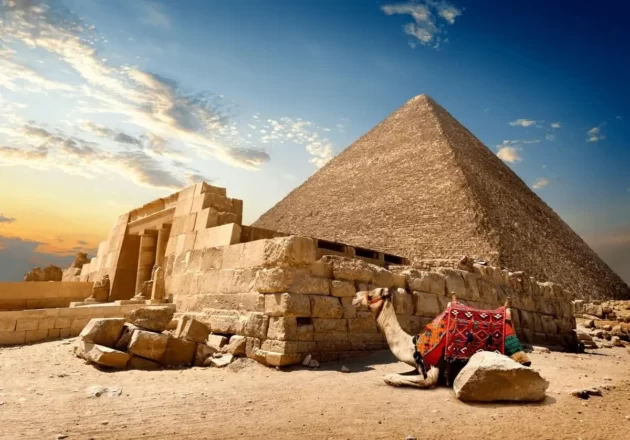
Although we often have a feeling like people are travelling for the last few decades only, the truth is – people are travelling for centuries. Old Romans were travelling to relax in their Mediterranean villas. At the same time, people in Eastern Asia wandered for cultural experiences. I’ve got so fascinated with the history of travelling, that I did my own little research on how people started to travel. And here is what I’ve learned.
History of travelling
I was always curious about the reason people started to travel. Was it for pure leisure? To relax? Or to learn about new cultures, and find themselves along the way?
I wanted to chaise the reason all the way to its source – to the first travellers. And hopped to find out what was the initial motivation for people to travel.
According to linguists, the word ‘travel’ was first used in the 14th century. However, people started to travel much earlier.
While looking at the history of travelling and the reasons people started to travel, I wanted to distinguish the difference between travellers and explorers. Most of the time, when thinking about travel in history, people like Marco Polo or Christopher Columbus are coming to mind. However, they weren’t really travellers in a modern sense. They were explorers and researchers. So, to really learn about how people started to travel, I wanted to focus on ordinary people. Travellers like you and me, if you wish.
Romans and their roads

First people who started to travel for enjoyment only were, I’m sure you won’t be surprised, old Romans. Wealthy Romans would often go to their summer villas. And it was purely for leisure. They could, of course, start doing that because they invented something quite crucial for travelling – roads. Well developed network of roads was the reason they could travel safely and quickly.
However, there is another reason that motivated people in Antiquity to travel. And I was quite amazed when I learned about it.
It was a desire to learn. They believed travelling is an excellent way to learn about other cultures, by observing their art, architecture and listening to their languages.
Sounds familiar? It seems like Romans were the first culture tourists.
⤷ Read more : 20 Archaeological sites you have to visit in Europe
Travelling during the Middle Ages
It may come by surprise, but people started to wander more during the Middle Ages. And most of those journeys were pilgrimages.
Religion was the centre of life back in the Middle Ages. And the only things that connected this world with the saints people were worshipping, were the relics of saints. Pilgrims would often travel to another part of the country, or even Europe to visit some of the sacred places.
The most popular destinations for all those pilgrims was Santiago de Compostela, located in northwest Spain. People would travel for thousands of kilometres to reach it. To make a journey a bit easier for them, and to earn money from the newly developed tourism, many guest houses opened along the way. Pilgrims would often visit different towns and churches on their way, and while earning a ticket to heaven, do some sightseeing, as well.
Wealthy people were travelling in the caravans or by using the waterways. What’s changing in the Middle Ages was that travel wasn’t reserved only for the rich anymore. Lower classes are starting to travel, as well. They were travelling on foot, sleeping next to the roads or at some affordable accommodations. And were motivated by religious purposes.
⤷ TIP : You can still find many of those old pilgrim’s routes in Europe. When in old parts of the cities (especially in Belgium and the Netherlands ), look for the scallop shells on the roads. They will lead you to the local Saint-Jacob’s churches. Places dedicated to that saint were always linked to pilgrims and served as stops on their long journeys. In some cities, like in Antwerp , you can follow the scallop shell trails even today.
Below you can see one of the scallop shells on a street and Saint-Jacques Church in Tournai , Belgium.

Grand Tours of the 17th century
More impoverished people continued to travel for religious reasons during the following centuries. However, a new way of travelling appeared among wealthy people in Europe.
Grand tours are becoming quite fashionable among the young aristocrats at the beginning of the 17th century. As a part of their education (hmmm… culture tourists, again?) they would go on a long journey during which they were visiting famous European cities. Such as London , Paris , Rome or Venice, and were learning about their art, history and architecture.
Later on, those grand tours became more structured, and they were following precisely the same route. Often, young students would be accompanied by an educational tutor. And just to make the things easier for them, they were allowed to have their servants with them, too.
One of those young aristocrats was a young emperor, Peter the Great of Russia. He travelled around western Europe and has spent a significant amount of his time in the Netherlands. The architecture of Amsterdam and other Dutch cities definitely inspired a layout of the new city he has built – Saint Petersburg . So, travelling definitely remains an essential part of education since Roman times.
⤷ Read more : 15 Best museums in Europe you have to visit this year
The railway system and beginning of modern travel in the 19th century

Before the railway system was invented, people mostly travelled on foot (budget travel) or by water (the first-class travel at that time). However, when in the 1840s, an extensive network of railways was built, people started to travel for fun.
Mid-19th century definitely marks a real beginning of modern tourism. It’s the time when the middle class started to grow. And they have found a way to travel easily around Europe.
It’s coming by no surprise that the first travel agency, founded by Thomas Cook in England, was established at that time, too. He was using recently developed trains together with a network of hotels to organise his first group trips.
⤷ Read more : The most interesting European myths and legends
History of travelling in the 20th century
Since then, things started to move quickly. With the development of transportation, travelling became much more accessible. Dutch ships would need around a year to travel from Amsterdam to Indonesia. Today, for the same trip, we need less than a day on a plane.
After the Second World War, with the rise of air travel, people started to travel more and more. And with the internet and all the cool apps we have on our smartphones, it’s easier than ever to move and navigate your way in a new country. Mass tourism developed in the 1960s. But, with the new millennium, we started to face the over-tourism.
We can be anywhere in the world in less than two days. And although it’s a great privilege of our time, it also bears some responsibilities. However, maybe the key is to learn from history again and do what old Romans did so well. Travel to learn, explore local history and art, and be true culture tourists.
History of Travelling , How people started to travel , Travel
- More from M-W
- To save this word, you'll need to log in. Log In
Definition of travel
(Entry 1 of 2)
intransitive verb
transitive verb
Definition of travel (Entry 2 of 2)
- peregrinate
- peregrination
Examples of travel in a Sentence
These examples are programmatically compiled from various online sources to illustrate current usage of the word 'travel.' Any opinions expressed in the examples do not represent those of Merriam-Webster or its editors. Send us feedback about these examples.
Word History
Middle English travailen, travelen to torment, labor, strive, journey, from Anglo-French travailler
14th century, in the meaning defined at intransitive sense 1a
14th century, in the meaning defined at sense 1a
Phrases Containing travel
- pre - travel
- see / travel the world
- travel agency
- travel agent
- travel sickness
- travel trailer
Articles Related to travel

Is it ‘traveling’ or...
Is it ‘traveling’ or ‘travelling’?
A tale of two variants
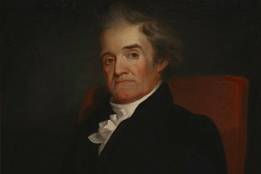
Noah Webster's Spelling Wins and Fails
Some of his biggest successes and defeats

8 Ways to Get Away From It All
Whether it's a jaunt or a junket, remember sunblock.
Dictionary Entries Near travel
Cite this entry.
“Travel.” Merriam-Webster.com Dictionary , Merriam-Webster, https://www.merriam-webster.com/dictionary/travel. Accessed 28 Sep. 2024.
Kids Definition
Kids definition of travel.
Kids Definition of travel (Entry 2 of 2)
Middle English travailen "torment, labor, strive, journey," from early French travailler "torment, labor," from an unrecorded Latin verb tripaliare "to torture," from Latin tripalium "an instrument of torture," literally "three stakes," derived from tri- "three" and palus "stake, pale" — related to pale entry 3 , travail
More from Merriam-Webster on travel
Nglish: Translation of travel for Spanish Speakers
Britannica English: Translation of travel for Arabic Speakers
Britannica.com: Encyclopedia article about travel
Subscribe to America's largest dictionary and get thousands more definitions and advanced search—ad free!

Can you solve 4 words at once?
Word of the day.
See Definitions and Examples »
Get Word of the Day daily email!
Popular in Grammar & Usage
Plural and possessive names: a guide, every letter is silent, sometimes: a-z list of examples, the difference between 'i.e.' and 'e.g.', more commonly misspelled words, absent letters that are heard anyway, popular in wordplay, weird words for autumn time, 10 words from taylor swift songs (merriam's version), 9 superb owl words, 15 words that used to mean something different, 10 words for lesser-known games and sports, games & quizzes.

- 1.1 Alternative forms
- 1.2 Pronunciation
- 1.3.1.1 Conjugation
- 1.3.1.2 Synonyms
- 1.3.1.3 Derived terms
- 1.3.1.4 Translations
- 1.4.1.1 Usage notes
- 1.4.1.2 Synonyms
- 1.4.1.3 Derived terms
- 1.4.1.4 Translations
- 1.4.1.5 Further reading
- 1.5 References
- 1.6 Anagrams
- 2.1 Etymology
- 2.2 Adjective
- 2.3 References
- 3.1 Etymology
- 3.2 Adjective
- 3.3 References
Alternative forms
- travail ( obsolete )
- travell ( obsolete )
Pronunciation
- IPA ( key ) : /ˈtɹævəl/
- Rhymes: -ævəl
Etymology 1
From Middle English travelen ( “ to make a laborious journey, travel ” ) from Middle Scots travailen ( “ to toil, work, travel ” ) , alteration of Middle English travaillen ( “ to toil, work ” ) , from Old French travailler ( “ to trouble, suffer, be worn out ” ) . See the doublet travail .
Largely displaced fare , from Old English faran ( “ to go [a long distance], to travel ” ) . More at fare .
travel ( third-person singular simple present travels , present participle travelling or ( US ) traveling , simple past and past participle travelled or ( US ) traveled )
- 1661 , John Stephens, An Historical Discourse... , Prol.: He that feareth oblatration must not travel .
- 1930 , Marmaduke Pickthall , transl., The Meaning of the Glorious Koran , surah 28, verse 29: Then, when Moses had fulfilled the term, and was travelling with his housefolk, he saw in the distance a fire and said unto his housefolk: Bide ye (here). Lo! I see in the distance a fire; peradventure I shall bring you tidings thence, or a brand from the fire that ye may warm yourselves.
- ( intransitive ) To pass from one place to another; to move or transmit . Soundwaves can travel through water. The supposedly secret news of Mary's engagement travelled quickly through her group of friends.
- ( intransitive , basketball ) To move illegally by walking or running without dribbling the ball.
- ( transitive ) To travel throughout (a place). I’ve travelled the world.
- 1596 (date written; published 1633 ), Edmund Spenser , A Vewe of the Present State of Irelande [ … ] , Dublin: [ … ] Societie of Stationers, [ … ] , →OCLC ; republished as A View of the State of Ireland [ … ] (Ancient Irish Histories), Dublin: [ … ] Society of Stationers, [ … ] Hibernia Press, [ … ] [ b ] y John Morrison, 1809 , →OCLC : They shall not be travailed forth of their own franchises.
- 1707 , Richard Baxter, The Practical Works of the Late Reverend and Pious Mr. Richard Baxter , page 646 : Necessity will make men fare hard, and work hard, and travel hard, go bare, and suffer much; yea it will even cut off a leg or arm to save their lives;
- 1719 , William Tilly, The Acceptable Sacrifice , page 335 : We labour sore, and travel hard, and much Study is a Weariness to our Flesh; and of making many Books there is no End.
- 1794 , “Resignation”, in A Complete Edition of the Poets of Great Britain.Volume 10 , page 144 : Man holds in constant service bound The blustering winds and seas; Nor suns disdain to travel hard Their master, man, to please;
Conjugation
† Archaic or obsolete . * US.
- fare , journey , reyse
Derived terms
- fellow-travel
- road less traveled
- travellable , travelable
- travelled , traveled ( adjective )
- traveller , traveler
- travel light
Translations
Etymology 2.
From Middle English travail , travell , from Old French travail , travaille , travaillie , traval , travalle , traveaul , traveil , traveille , travel . Doublet of travail .

travel ( countable and uncountable , plural travels )
- The act of traveling; passage from place to place. space travel travel to Spain
- 2023 November 29, 'Mystery Shopper', “Does the railway deliver for passengers?”, in RAIL , number 997 , page 53 : But overall, I think the railway delivered very well on my travels . I'd give it 9/10 - there are just a few little rough edges that need smoothing off.
- 1903 , Henry Yule, Arthur Burnell, Hobson-Jobson : CALUAT, s. This in some old travels is used for Ar. khilwat, 'privacy, a private interview' (C. P. Brown, MS.).
- The activity or traffic along a route or through a given point.
- The working motion of a piece of machinery; the length of a mechanical stroke. There was a lot of travel in the handle, because the tool was out of adjustment. My drill press has a travel of only 1.5 inches.
- 1667 , John Tanner, The hidden treasures of the art of physick , page 208 : Hard Labour is when more vehement Pains and dangerous Symptomes happen to Women in Travel , and continue a longer time.
- Distance that a keyboard's key moves vertically when depressed. The keys have great travel .
Further reading
- “ travel ”, in The Century Dictionary [ … ] , New York, N.Y.: The Century Co. , 1911 , →OCLC .
- “ travel ”, in Webster’s Revised Unabridged Dictionary , Springfield, Mass.: G. & C. Merriam , 1913 , →OCLC .
- retval , varlet
Norwegian Bokmål
Possibly from French travail ; compare with Danish travl .
travel ( neuter singular travelt , definite singular and plural travle , comparative travlere , indefinite superlative travlest , definite superlative travleste )
- “travel” in The Bokmål Dictionary .
Norwegian Nynorsk
travel ( neuter singular travelt , definite singular and plural travle , comparative travlare , indefinite superlative travlast , definite superlative travlaste )
- “travel” in The Nynorsk Dictionary .
- English 2-syllable words
- English terms with IPA pronunciation
- English terms with audio links
- Rhymes:English/ævəl
- Rhymes:English/ævəl/2 syllables
- English terms derived from the Proto-Indo-European word *tréyes
- English terms derived from Proto-Indo-European
- English terms derived from the Proto-Indo-European root *peh₂ǵ-
- English terms inherited from Middle English
- English terms derived from Middle English
- English terms derived from Middle Scots
- English terms derived from Old French
- English doublets
- English lemmas
- English verbs
- English intransitive verbs
- English terms with usage examples
- English terms with quotations
- en:Basketball
- English transitive verbs
- English terms with obsolete senses
- English nouns
- English uncountable nouns
- English countable nouns
- en:Typing keyboards
- Norwegian Bokmål lemmas
- Norwegian Bokmål adjectives
- Norwegian Nynorsk lemmas
- Norwegian Nynorsk adjectives
- Pages using the WikiHiero extension
- Requests for cleanup in English entries
- Pages with 3 entries
- Entries with translation boxes
- Terms with Abkhaz translations
- Terms with Arabic translations
- Terms with Egyptian Arabic translations
- Terms with Armenian translations
- Terms with Assamese translations
- Terms with Asturian translations
- Terms with Avar translations
- Terms with Azerbaijani translations
- Terms with Basque translations
- Terms with Belarusian translations
- Terms with Breton translations
- Terms with Bulgarian translations
- Terms with Burmese translations
- Terms with Catalan translations
- Requests for translations into Chechen
- Terms with Cantonese translations
- Mandarin terms with redundant transliterations
- Terms with Mandarin translations
- Terms with Cornish translations
- Terms with Czech translations
- Terms with Danish translations
- Terms with Dutch translations
- Terms with Esperanto translations
- Terms with Estonian translations
- Terms with Faroese translations
- Terms with Finnish translations
- Terms with French translations
- Terms with Galician translations
- Terms with Georgian translations
- Terms with German translations
- Terms with Gothic translations
- Terms with Greek translations
- Terms with Ancient Greek translations
- Terms with Greenlandic translations
- Terms with Haitian Creole translations
- Terms with Hebrew translations
- Terms with Hindi translations
- Terms with Hungarian translations
- Terms with Icelandic translations
- Terms with Ingrian translations
- Terms with Interlingua translations
- Terms with Irish translations
- Terms with Italian translations
- Terms with Japanese translations
- Terms with Kazakh translations
- Khmer terms with redundant script codes
- Terms with Khmer translations
- Terms with Korean translations
- Terms with Kyrgyz translations
- Terms with Lao translations
- Terms with Latin translations
- Terms with Latvian translations
- Terms with Lithuanian translations
- Terms with German Low German translations
- Terms with Luxembourgish translations
- Terms with Macedonian translations
- Terms with Malay translations
- Terms with Malayalam translations
- Terms with Mapudungun translations
- Terms with Mongolian translations
- Nepali terms with redundant transliterations
- Terms with Nepali translations
- Terms with Norman translations
- Terms with Northern Sami translations
- Terms with Norwegian translations
- Terms with Norwegian Nynorsk translations
- Terms with Occitan translations
- Terms with Old English translations
- Terms with Ossetian translations
- Terms with Papiamentu translations
- Terms with Persian translations
- Terms with Piedmontese translations
- Terms with Polish translations
- Terms with Portuguese translations
- Terms with Quechua translations
- Terms with Romanian translations
- Terms with Romansch translations
- Terms with Russian translations
- Terms with Scots translations
- Terms with Serbo-Croatian translations
- Terms with Slovak translations
- Terms with Slovene translations
- Terms with Upper Sorbian translations
- Terms with Spanish translations
- Terms with Swahili translations
- Terms with Swedish translations
- Terms with Tajik translations
- Terms with Thai translations
- Tibetan terms with redundant script codes
- Terms with Tibetan translations
- Terms with Turkish translations
- Terms with Turkmen translations
- Terms with Tuvan translations
- Ukrainian terms with redundant script codes
- Terms with Ukrainian translations
- Terms with Uzbek translations
- Terms with Vietnamese translations
- Terms with Volapük translations
- Terms with Welsh translations
- Requests for translations into White Hmong
- Terms with Zhuang translations
- Requests for review of Esperanto translations
- Requests for review of Interlingua translations
- Requests for review of Volapük translations
- Quotation templates to be cleaned
- Terms with Albanian translations
- Terms with Bengali translations
- Terms with Chukchi translations
- Terms with Higaonon translations
- Terms with Norwegian Bokmål translations
- Terms with Odia translations
- Terms with Scottish Gaelic translations
- Terms with Sinhalese translations
- Terms with Telugu translations
- Terms with Urdu translations
Navigation menu
Join Us On YouTube!

Matsumoto Castle, Nagano, Japan
A Brief History of Travel and Tourism
Utilizing the widest definition of the word, human beings have been travelling since the dawn of time. No matter one’s beliefs about the creation of humans, everyone can agree our species began in some single locale, likely Africa or the Middle East , and ‘travelled’ outwards, settling new lands. However, most of this ‘travel’ was done out of necessity and war, often without the intent of return. It wouldn’t be until Antiquity, or the glory days of the Greek and Roman empires, that tourism, or leisure travel, would be introduced.
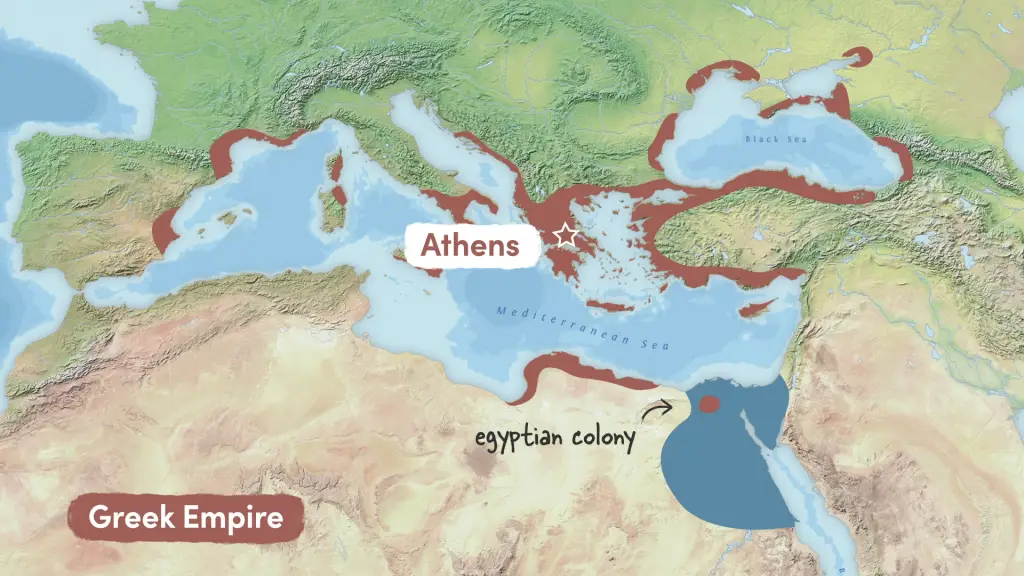
Aristocratic Tourism
In those days, tourism was a privilege almost entirely confined to the wealthy, who travelled largely for cultural exploration. One has to remember, the Greek and Roman upper classes were people who prided themselves on artistic, scientific, and philosophical pursuits. It follows, then, that these early travellers largely sought to learn the arts, languages, and cultures of their destinations.

Soon enough, travelling for leisure’s sake began to gain popularity; from the Roman Empire arises some of the earliest examples of travel resorts and spas in the world. Though they documented their experiences most thoroughly, the elite Europeans were not the only ones travelling in ancient times. In eastern Asia , it was popular for nobles to travel across the countryside for the religious and cultural experience it offered, oftentimes stopping at temples and sacred sites during their travels.
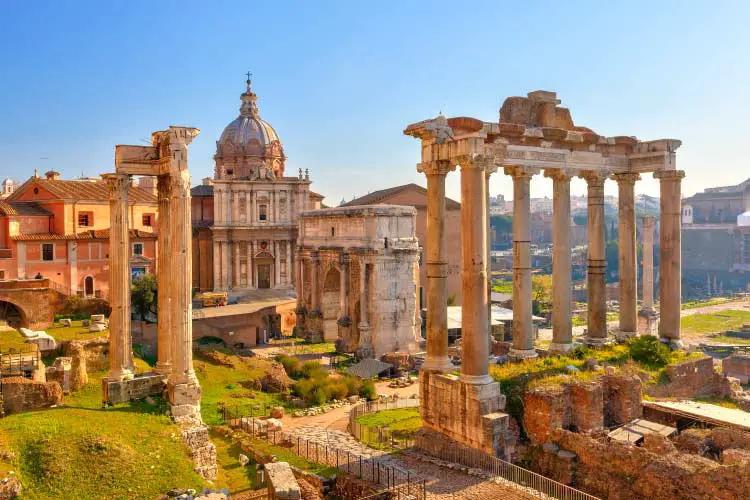
Religious Tourism
During the Middle Ages, travel took on a new meaning. Although leisurely travel was still reserved for the upper class, it became more and more common for members of the upper and even lower classes to embark on pilgrimages. Most of the major religions at the time, including the Islamic, Judaic, and Christian traditions, encouraged their practitioners to conduct pilgrimages.
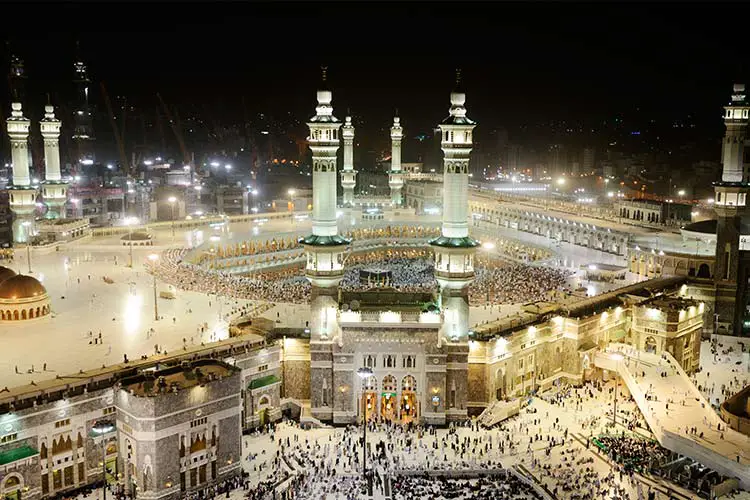
Largely unaided by technology, most of these journeys were done on foot, often occasionally with a beast of burden to carry supplies. The wealthy were able to afford other forms of travel including horseback and ship. Furthermore, the Middle Ages saw the emergence of connected shipping routes. As ports grew, travel opportunities increased, and the dock was typically the start of any long-distance travel during the Middle Ages.

The Grand Tour
Travel continued to exist in this way for some time: the rich travelled primarily for cultural and leisure reasons, while the poor travelled largely for religious reasons, if at all. The next major development travel underwent was the establishment of the Grand Tour. Undertaken by the elite men of Western and Northern European countries , the Grand Tour took young travellers across Europe in a “rite of passage” meant to educate the wealthy after they finished their education but before adulthood. Historians cite this tradition as the origin of the modern tourism industry and indicate that the tradition had become well established in European culture by the 1660s.
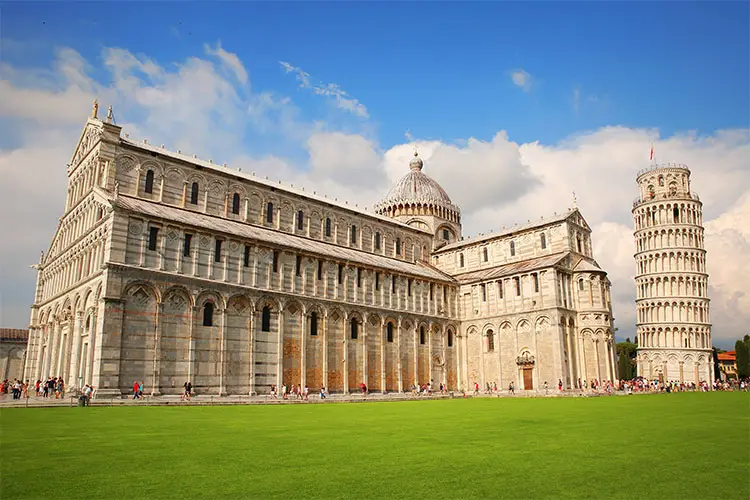
Like many traditions, the Grand Tour eventually developed a rigid structure. Tourists were expected to follow a set itinerary and travelled with a tutor. The Grand Tour typically began in England, moved south through France into Switzerland and Italy. After spending a few months in Italy, the traveller and his tutor moved upwards through Germany and into Holland before returning to England. These trips utilized the most advanced travel technology of the day, including ships and collapsable coaches, and it wasn’t entirely uncommon for the traveller and tutor to be waited on by a handful of servants.

Tourism For The Masses
The Grand Tour remained a popular cultural phenomenon amongst the rich until the 1840s, which saw the advent of the first widespread railway system across system Europe. Immediately, this innovation opened the possibility of embarking on a Grand Tour to the middle classes, and soon it became more popular for middle and even working-class citizens to travel for leisure.

More importantly, the implementation of railway systems across Europe and the United States positioned the world for the Industrial Revolution. The United Kingdom is often cited as the first country to actively promote leisure time to its industrial class, and as a result, the country had a strong impact on the early development of the tourism industry. One hugely influential player in the history of travel and tourism was Englishmen Thomas Cook, who established the first-ever travel agency to provide ‘inclusive individual travel’ in the 1840s.
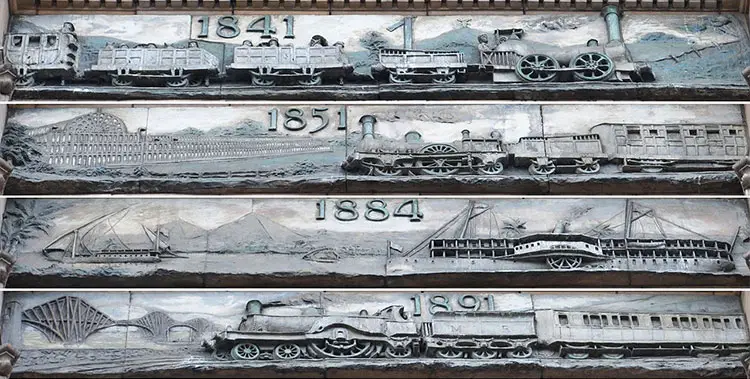
This means that travellers move independently in their travels, but all the food, lodging, and travel expenses were set at a fixed price for a predetermined length of time. This allowed travellers to take any route they fancied throughout Europe without having to ascertain food or lodging ahead of time. This fact, coupled with the falling ticket prices of railways, meant that long-distance travel was dramatically cheaper and faster than ever before. This not only further lowered the barriers to leisure travel but also drastically increased the incidences of business-related travel. As one can imagine, Cook’s Tours became massively popular, and the company remains successful today as the Thomas Cook Group.
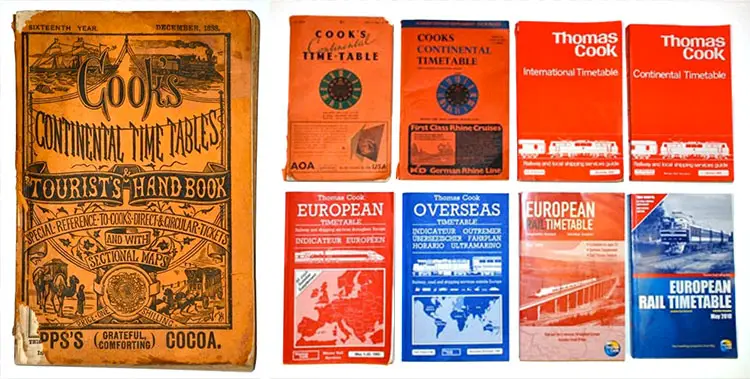
In short, the introduction of a widespread railway system gifted a massive boost to the tourism industry; this boon would largely reflect that the aeroplane would have in the early-20th century. More so than any other technological development, the aeroplane opened the floodgates of mass international tourism. Behemoth multinational airlines such as Pan Am, Delta, and American Airlines arose during the 1900s, and suddenly the physical boundaries between cities were rendered useless. It has become possible for a traveller to get nearly anywhere on the globe in less than 48 hours, for a price that most middle and working-class members can achieve.
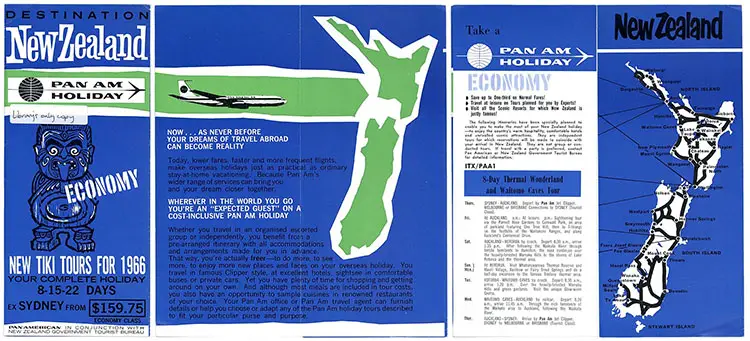
Today, travel stands as one of the most economically important leisure activities in the world. The tourism market is so large that it has split into an astounding number of niche markets, including ecotourism , backpacking, and historical tourism. As of the writing of this article, there have even been a handful of trips into orbit around Earth branded as “space tourism”, a new and exciting chapter in the history of travel and tourism. The story of tourism displays a remarkable connection to the technology that makes travel possible. Transportation innovations like the train and aeroplane have eliminated the difficulties and lowered the costs of long-distance travel, and planet Earth has truly become a smaller place because of it.
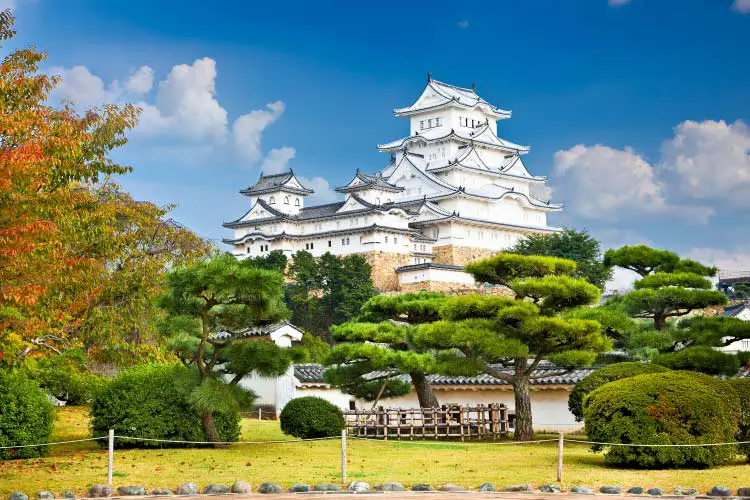
© Textbook Travel 2024 ⋅ View Privacy Policy

“A good traveler has no fixed plans, and is not intent on arriving.”

What Is the Etymological Origin of the Word 'Travel'?

The image above was possibly inspired by "Noel Kempff Mercado National Park," which was itself inspiration for Arthur Conan Doyle's book, 'The Lost World.'
Noel Kempff Mercado National Park
"The Park is dominated by a large tableland of 7000 sq km, the Bolivian side of which is Serrania Huanchaca, and the Brazilian side is Sererania Ricardo Franco. The intervening Rio Verde marks the national boundary. The tableland is bounded by precipitous cliffs, 200 to 700 metres in height. The rocks of the tableland comprise Proterozoic sandstones, deposited around 1 billion years ago, intruded by a tholeiitic sill/dyke complex. These overlie an older basement of granites and metamorphic rocks which crop out over the Amazonic plain. The surface of the tableland is overlain by Cretaceous sandstones, and there are laterites and siliceous duricrusts which mark stages of Tertiary uplift and peneplanation.[8]
The Huanchaca Plateau within the park is 600-900 m above sea level and is composed of Precambrian sandstone and quartzite of the Brazilian Shield."
~ Wikipedia
Getting Where You Want To Go Easily
Travelling today is not only cheap, but also efficient thanks to modern aerospace technologies like the Airbus A350-900, Airbus A340-600, Boeing 777-300ER, and Boeing 747-8.
Getting around however, was historically not so easy to do. The word travel is originally derived from the word 'torture.'
" Travel and travail are doublets - that is to say, they have a common ancestor, but have split into separate words. Their ultimate source is medieval Latin trepalium, a term for an instrument of torture made of three sharp stakes. This was a compound noun formed from Latin tres 'three' and palus 'stake' (source of English pale ). From it was formed a verb trepaliare 'torture on the trepalium, ' hence generally 'torture.' This passed into Old French as travailler, where its reflexive use 'put oneself to pain or trouble' evolved to 'work hard.' Its noun derivative travail 'painful effort, hard work' was borrowed by English as travail, and this quickly developed a new sense, 'journey' (presumably from the notion of a 'wearisome journey'), which came to be distinguished by the spelling travel. "
~ John Ayto, "Dictionary of Word Origins"
Featured Posts

Reading World Magazine FAQs

Achieving Alignment Through Communication

Developing Cognitive Ambidexterity

Seventeen Secrets to Living Your Best Life in 2024

Characteristics of a Winner

Organizational Psychology
Similar Posts

What Is the Etymological Origin of the Word 'Gratitude'?

What Is the Etymological Origin of the Word 'Algorithm'?

What Is the Etymological Origin of the Word 'Thing'?

What Is the Etymological Origin of the Word 'Large'?

What Is the Etymological Origin of the Word 'Jean'?

What Is the Etymological Origin of the Word 'Pants?'
Featured Vimeos

Featured Playlists

Recent Posts

Academia.edu no longer supports Internet Explorer.
To browse Academia.edu and the wider internet faster and more securely, please take a few seconds to upgrade your browser .
Enter the email address you signed up with and we'll email you a reset link.
- We're Hiring!
- Help Center

Download Free PDF
The Origin and Meaning of Tourism: Etymological Study

On the paper
Free related PDFs Related papers
The conventional view of tourism's past is dominated by the history of western cultural experience. Tourism starts with the wealthy, with images of prestigious visits to spas and seaside resorts, Grand Tours and the activities of business entrepreneurs such as Thomas Cook, before it begins to filter down the social ladder. This paper argues that more attention should be paid to tourism's past in non-western societies and cultures and to the more ordinary and routine practices of a wider cross-section of the population. It is too simplistic to portray tourism's evolution as a geographical process of diffusion from one or two core areas and a social process of downward movement from the affluent. Reasons for the prevailing image of tourism's past are suggested and several ideas are proposed for broadening research into its history.
The SAGE International Encyclopedia of Travel & Tourism, 2017

Tourism Management, 1995

Various academic disciplines have repeatedly sought to re-evaluate the significance of tourism. Globalised tourism's so-cio-economic place within the framework of the leisure and holidaying opportunities on offer today has attracted particular attention. Such accounts often leave out the fact that this also has a history. The present article aims to overcome this shortcoming: it seeks to present an overview of the important structures, processes, types and trends of tourism against the background of historical developments. It deals with early forms of travel in the classical world and the Middle Ages, as well as the precursors of modern tourism, Bildungsreisen ("educational journeys") and the middle-class culture of travel. It then examines the boom in mass tourism in the 19th century and the unique expansion of tourism in the 1960s characterised by new forms of holidaying and experience shaped by globalisation.

Annals of Tourism Research, 1986

International Journal of Sustainable Economies Management, 2015
Activities have been known as starting points in the tourist field since Antiquity. During the millennia, several practical aspects (as types - trips for recreation, sports, specific for the winter season or at the seaside, in aquatic environments, trips for balneal treatments, trips for discovering architectural, artistic treasures, etc., as participation form - from the individual ones to the mass or group ones, as beneficiary or service provider; with general fittings, but also specific ones), as well as theoretical aspects (the progressive achievement of a proper terminology, in order to be used by many participants in the tourist actions; the elaboration of guides, leaflets, encyclopaedias, maps, etc.); complete territorial analyses of tourist resources (considering the revaluation level, approaching tourism issues in treaties, doctoral theses, etc.); the scientific and methodological content of curricula from tourism schools, departments and faculties; setting the meaning of t...

Passato e presente, 2024

Educación Rural en Colombia, 2019

Theory, Culture & Society, 2023

Revista Alcance, 2015

Journal Space and Culture, India, 2018

Journal of Business, Economics and Finance, 2023

JAMA neurology, 2017

BMC Pediatrics

Investigaciones marinas, 1998

Márgenes, 2023

Academic Emergency Medicine, 2019

Journal of Health Informatics, 2015

European Radiology

JMM UNRAM - MASTER OF MANAGEMENT JOURNAL, 2018

Related topics
- We're Hiring!
- Help Center
- Find new research papers in:
- Health Sciences
- Earth Sciences
- Cognitive Science
- Mathematics
- Computer Science
- Academia ©2024
- Dictionaries home
- American English
- Collocations
- German-English
- Grammar home
- Practical English Usage
- Learn & Practise Grammar (Beta)
- Word Lists home
- My Word Lists
- Recent additions
- Resources home
- Text Checker
Definition of travel verb from the Oxford Advanced Learner's Dictionary
- I go to bed early if I'm travelling the next day.
- + adv./prep. to travel around the world
- I love travelling by train.
- We always travel first class.
- I travel abroad a lot.
- They travelled on the bus to and from work together.
- We travelled to California for the wedding.
- They enjoy travelling to other European countries.
- My client travels extensively on business.
- When I finished college I went travelling for six months (= spent time visiting different places) .
- travel something As a journalist, she has travelled the world .
- He travelled the length of the Nile in a canoe.
- I travel 40 miles to work every day.
- They travelled huge distances in search of food.
- Many residents must travel long distances to a grocery store.
- He travels back and forth across the Atlantic.
- He travels with a huge entourage.
- I prefer travelling independently to going on a package holiday.
- She travels widely in her job.
- The dissidents were unable to hold meetings or travel freely.
- The job gives her the opportunity to travel abroad.
- We decided to travel by car.
- We had to travel separately as we couldn't get seats on the same flight.
- We plan to travel through Thailand and into Cambodia.
- business people who travel regularly to the US
- information for the backpacker who wants to travel farther afield
- Children under five travel free.
- I spent a year travelling around Africa.
- More people travel by air than ever before.
- We travelled the length and breadth of the country.
- We've travelled a long way in the past few days.
- Hundreds of hospital patients may have to travel long distances for treatment.
- freedom to travel
- go travelling/traveling
- travel all over the world
Questions about grammar and vocabulary?
Find the answers with Practical English Usage online, your indispensable guide to problems in English.
- to travel at 50 miles an hour
- Messages travel along the spine from the nerve endings to the brain.
- News travels fast these days.
- He never travelled far from the home he shared with his mother.
- The wide streets allow cars to travel at high speeds.
- In the film, he travels back in time to the '50s.
- Is it possible for anything to travel faster than the speed of light?
- They seem to be travelling north.
- The truck was travelling at 90 mph when it veered off the road.
- Some wines do not travel well.
- These recipes travel well and don't require unusual ingredients or equipment.
- Some writing travels badly (= is not successful) in translation.
- Their car can really travel!
- She travels light, choosing to use as little equipment as possible.
Other results
- travel agents
- travel agencies
- travel agent’s
- travel-sickness
- adventure travel
- Association of British Travel Agents
- travel light
Nearby words
- New Zealand
- Greek Mythology
- Entertainment
- The Olympic Game
- 12 Super-Rich Members
- 9 Muses of Greek Gods Paradise
- Gifts, Wills and Bequests
- Book Your Adventure!

20 of the Most Beautiful Travel Words and their Unique Greek Origins
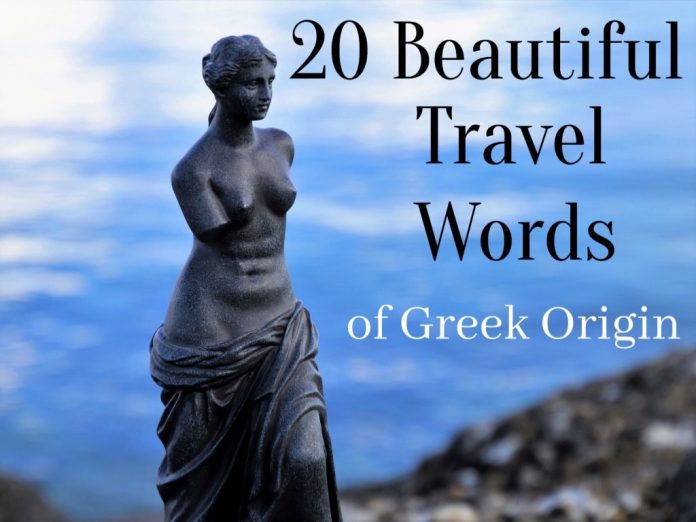
Beautiful travel words of Greek origin inspire and give meaning to all types of travel experiences.
By knowing about these Greek-related travel words, you will, in effect, gain a greater insight into the world of travel, especially when visiting Greece.
All of these beautiful travel words have something special about them.
It could be how a word sounds, the feelings, and wanderlust they inspire, the beautiful images they bring to mind, or some special uniqueness that makes them memorable.
The Most Beautiful Travel Words of Greek Origin
One thing is for sure, this list of the most beautiful travel words with unique Greek origins will expand your vocabulary—which is always a good thing.
I’ve also included another list of travel words at the end of this list (after the 20 most beautiful travel words) that didn’t make it into the top twenty.
The reason for doing this is so you can fully appreciate all the Greek-related travel words I considered for inclusion in this list of beautiful travel words.
It wasn’t easy to settle on these twenty best travel words of Greek origin, but I’m happy enough with the result.
Have a look and see what you think.
1. Aegean Sea – Travel Words
Origin: Greek
A beautiful word that brings to mind a few of the most beautiful Greek Islands , including Santorini, Mykonos, and Crete—to name a few.
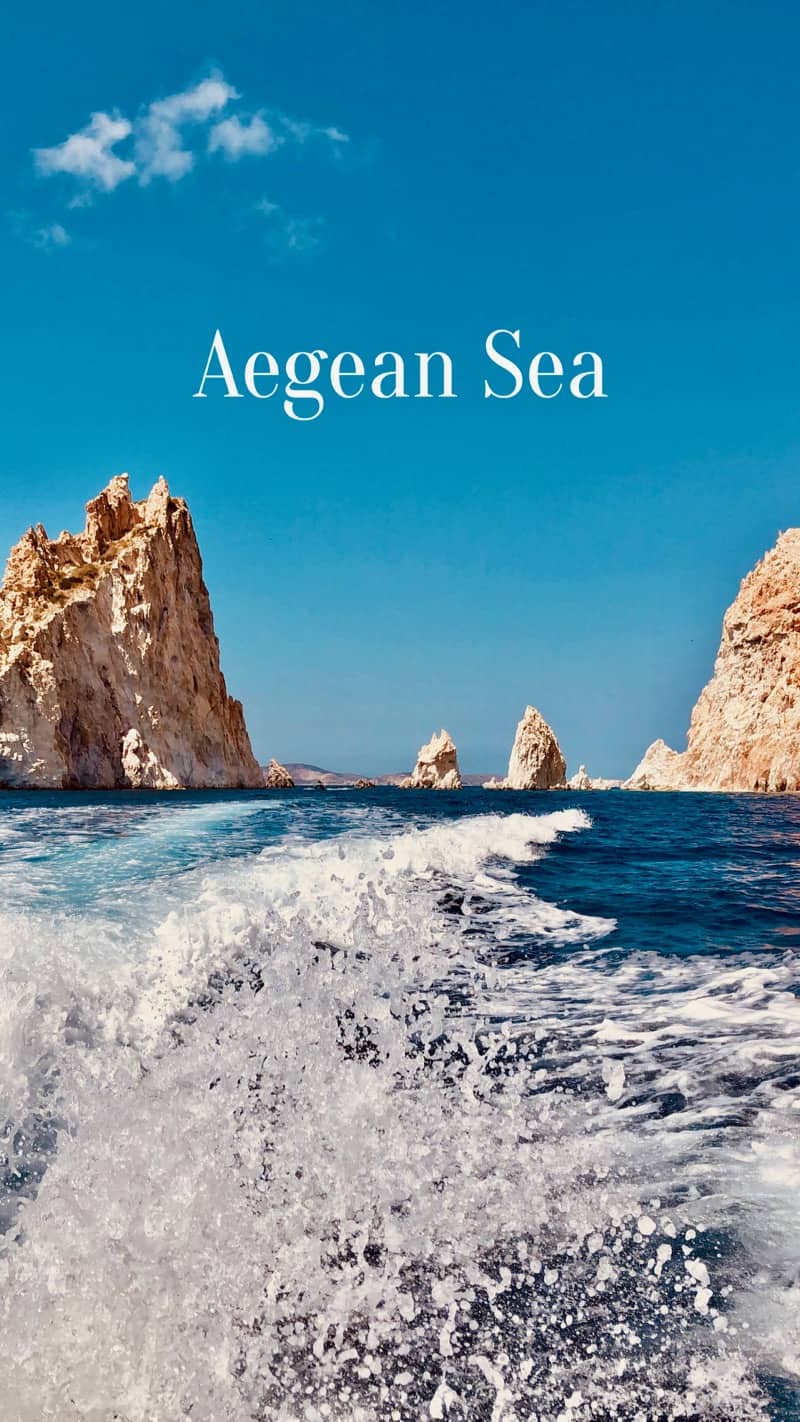
“Happy is the man, I thought, who, before dying, has the fortune to sail the Aegean sea.” – Nikos Kazantzakis.
According to Greek Mythology, the Aegean Sea owes its name to an ancient King of Athens, Aigeas (Aegeas).
Aegeas was the father of the famous Greek hero, Theseus, who slew the Minotaur on the island of Crete.
When returning to Athens, Theseus sailed back to Athens with black sails after forgetting to change the ship’s sails to white ones.
As a result, his father thought it meant that his son hadn’t survived the ordeal. The fateful error led to the King’s tragic death since he decided to end his life by jumping into the sea.
Eventually, the surrounding sea would become known as the Aegean Sea.
Aegean Airlines also took its name from the same source.
The word Athens immediately conjures up beautiful images of The Parthenon.
Most overseas travelers first arrive by plane to Athens when they vacation in Greece.
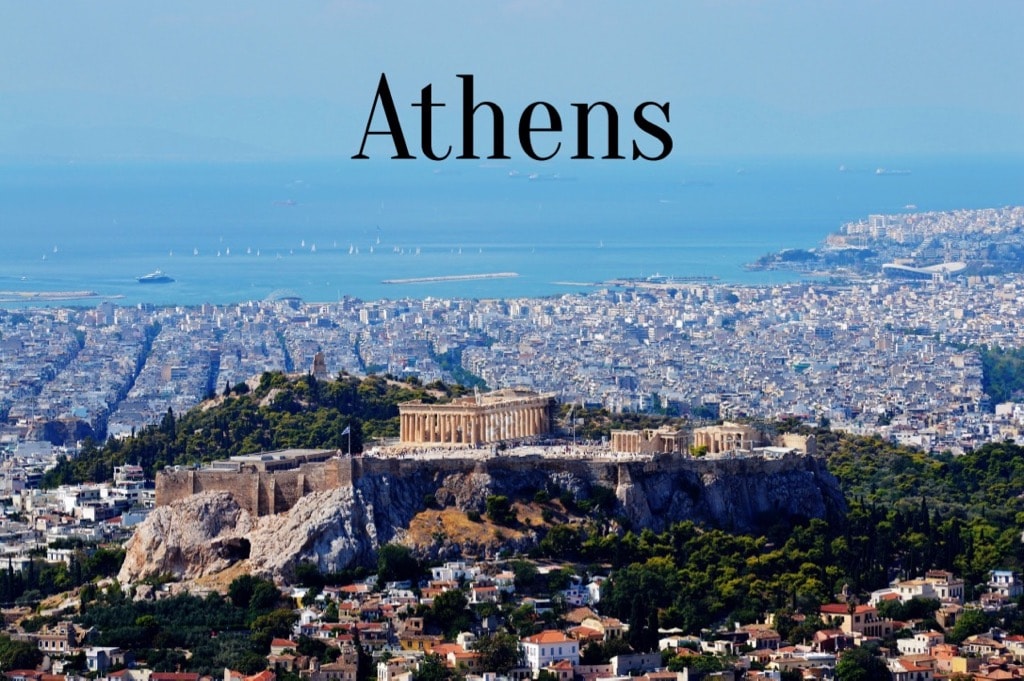
The city received its name from the Goddess Athena.
In Greek Mythology, Athena and Poseidon had a contest to see who would become the patron of the Greek city.
Athena gifted the people the olive tree, while Poseidon made a spring gush forth from rocks.
Athena’s gift was deemed the best of the two by the people, so the city was named in her honor.
I had to include this word as one of the most beautiful travel words of Greek origin.
Athena, the Goddess of wisdom, is also beautiful, as proven by the famous beauty contest between Aphrodite, Athena, and Hera.
It wouldn’t have been smart on my part not to have included Athens in a list of the most beautiful travel words.
An atlas is a collection or book of maps, but it’s also an airline company.
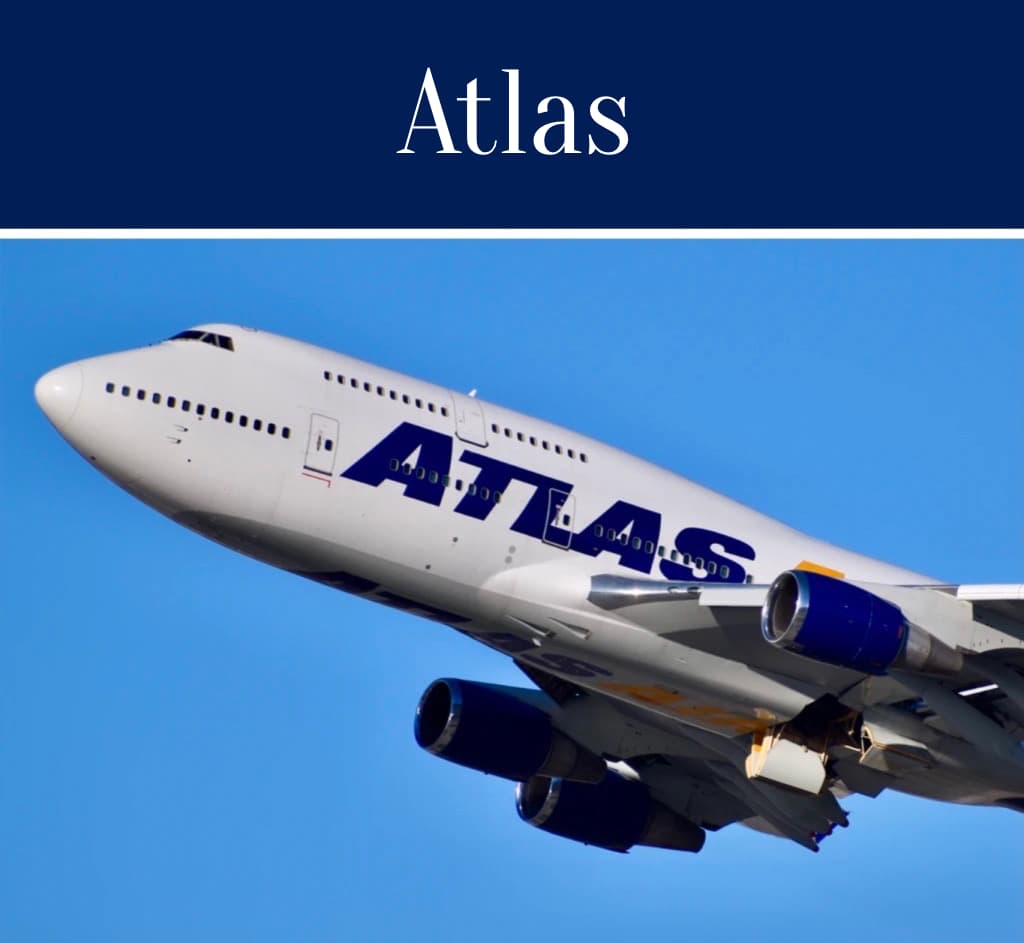
According to Greek legend, Atlas was a Titan condemned to carry the heavens upon his shoulders.
The Titan Atlas is the reason why we can all travel around and explore the world.
4. Eleutheromania
Have you ever felt the intense desire for freedom? Well, the word for this feeling is Eleutheromania.

It’s similar to the feeling of wanderlust in different languages. Travel is one way that makes people feel free, and eleutheromania is the desire for that feeling.
It comes from Ancient Greek ἐλευθερία (eleuthería, ‘freedom’) plus -mania.
It’s another word for Paradise!
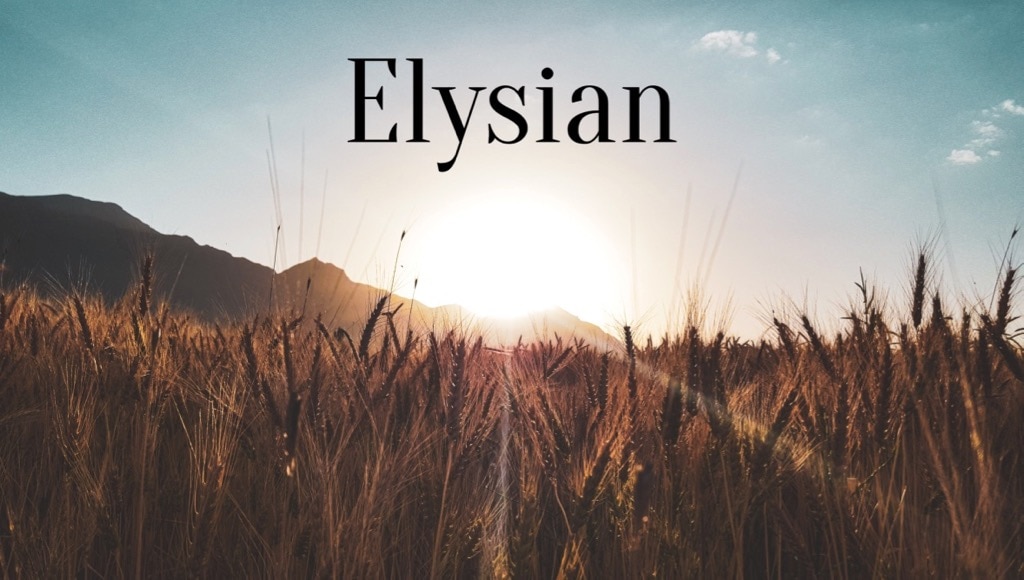
Greek Mythology deemed the Elysian Fields as being a heavenly resting place after death.
It was seen as the go-to-place in the afterlife. Sadly not everyone was allowed entry into Olympus, the home of the Gods.
One of France’s main streets is named after this heavenly abode, the Champs-Élysees in Paris.
The street is famous for connecting the Arc de Triomphe with the Place de la Concorde. Many consider it to be one of the world’s most famous commercial streets.
Elysian has to be one of the most beautiful travel words because everyone wants to end up in paradise one day. At least you can visit it in Paris.
6. Eudaimonia
It’s that happy feeling you get when you travel.

Feeling great when traveling, then the Greek word that describes it is eudaimonia.
It comes from Greek philosophy that has been translated as meaning happiness or well-being.
It has to be one of the biggest reasons why many people love traveling and exploring new places.
Europe is where it’s all at. You have Greece, Italy, and so many other great countries to visit.
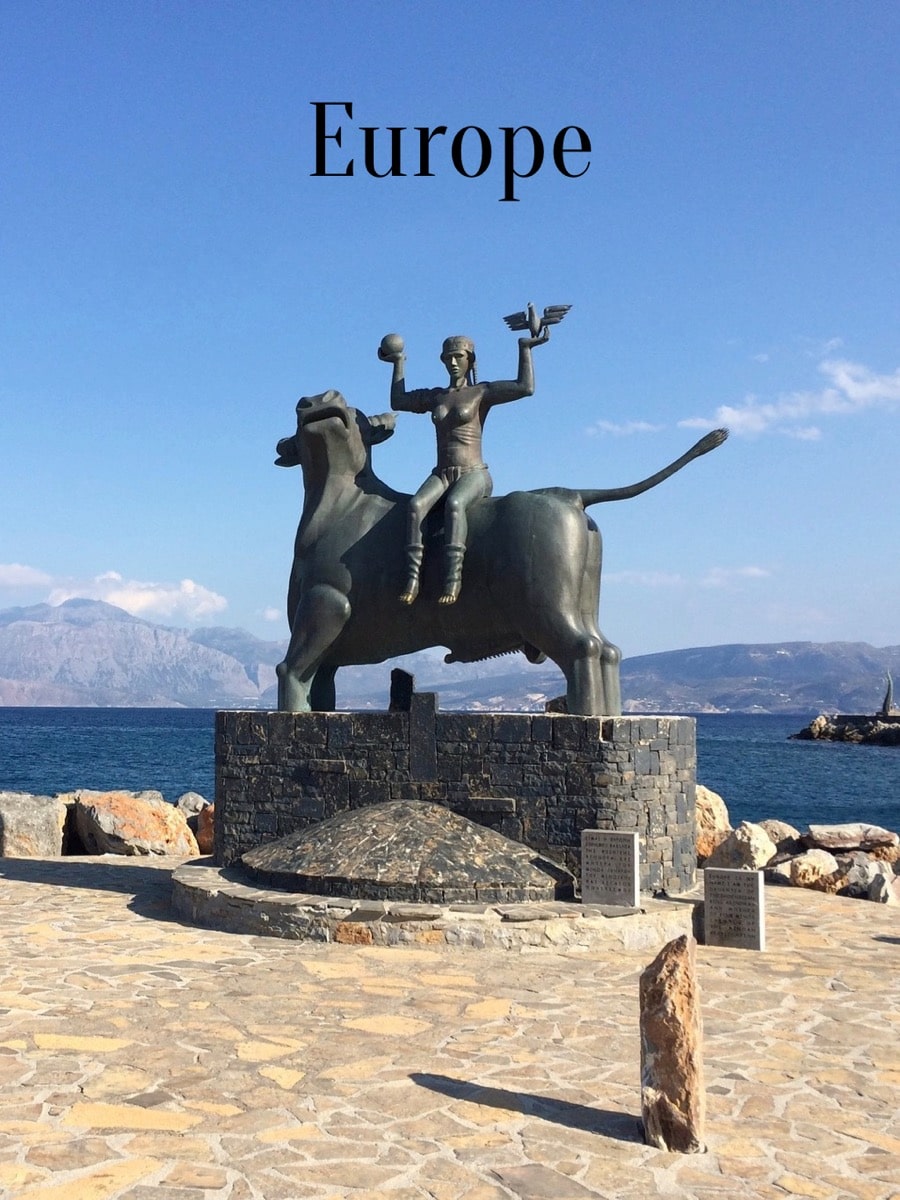
It all started with Europa, the mythological princess who ended up being seduced by Zeus.
Zeus took her to the island of Crete across the ocean after the princess sat on his back while he was disguised in the form of a beautiful white bull.
At the time, she had no idea that it was really Zeus, the king of the Gods.
No one could have foreseen that Europa would bestow her name to a group of countries that would one day be known as Europe.
It has become one of the most sought out travel destinations globally, and it all started with a weird sea voyage of her own.
You have the world, and then you have the Galaxy.

It all started with the Milky Way, which is based on the Greek myth of Heracles, who, as a child, spilled some milk.
The word is derived from the Greek galaxias (kuklos) ‘milky (vault)’, from gala, galakt- ‘milk.’
I thought about it carefully, but I couldn’t leave Greece out from this list of beautiful travel words.
Greece is where many tourists dream of visiting, especially during the Greek summer.
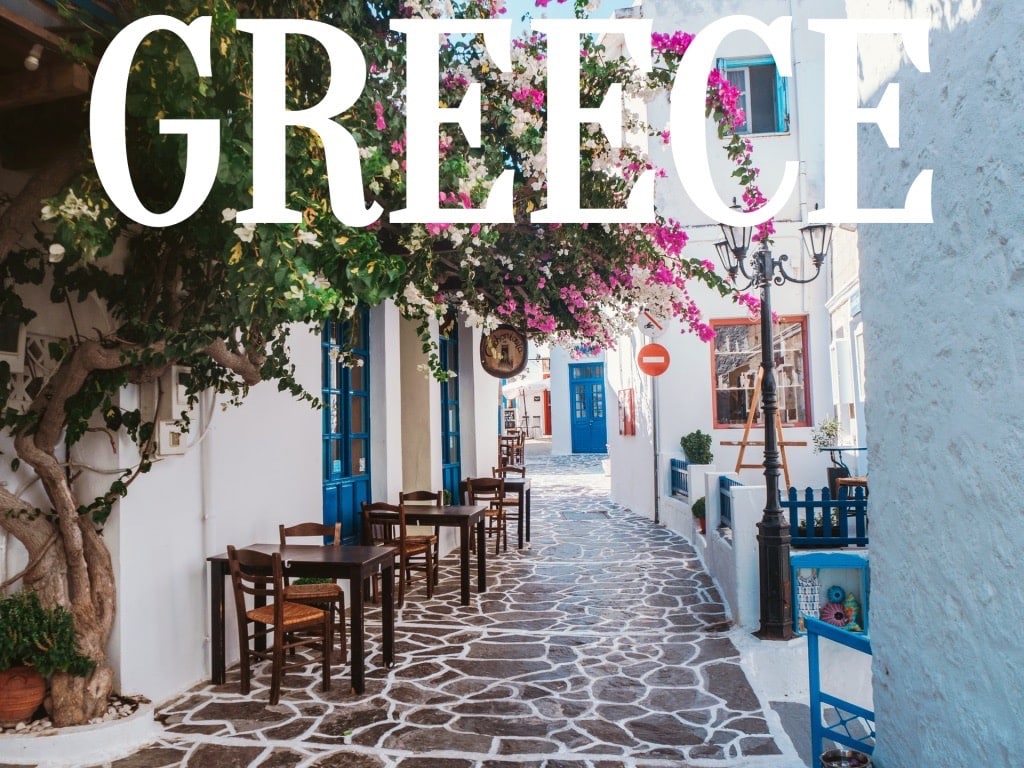
Aristotle used the term “Graiko” as the name for the first inhabitants of the region.
It was later adopted by the Romans and turned into “Graecus,” a Latin word, to describe the people on the land now known as Greece.
10. Greek Islands
If there is one word better than Greece, then it would have to be the Greek Islands.
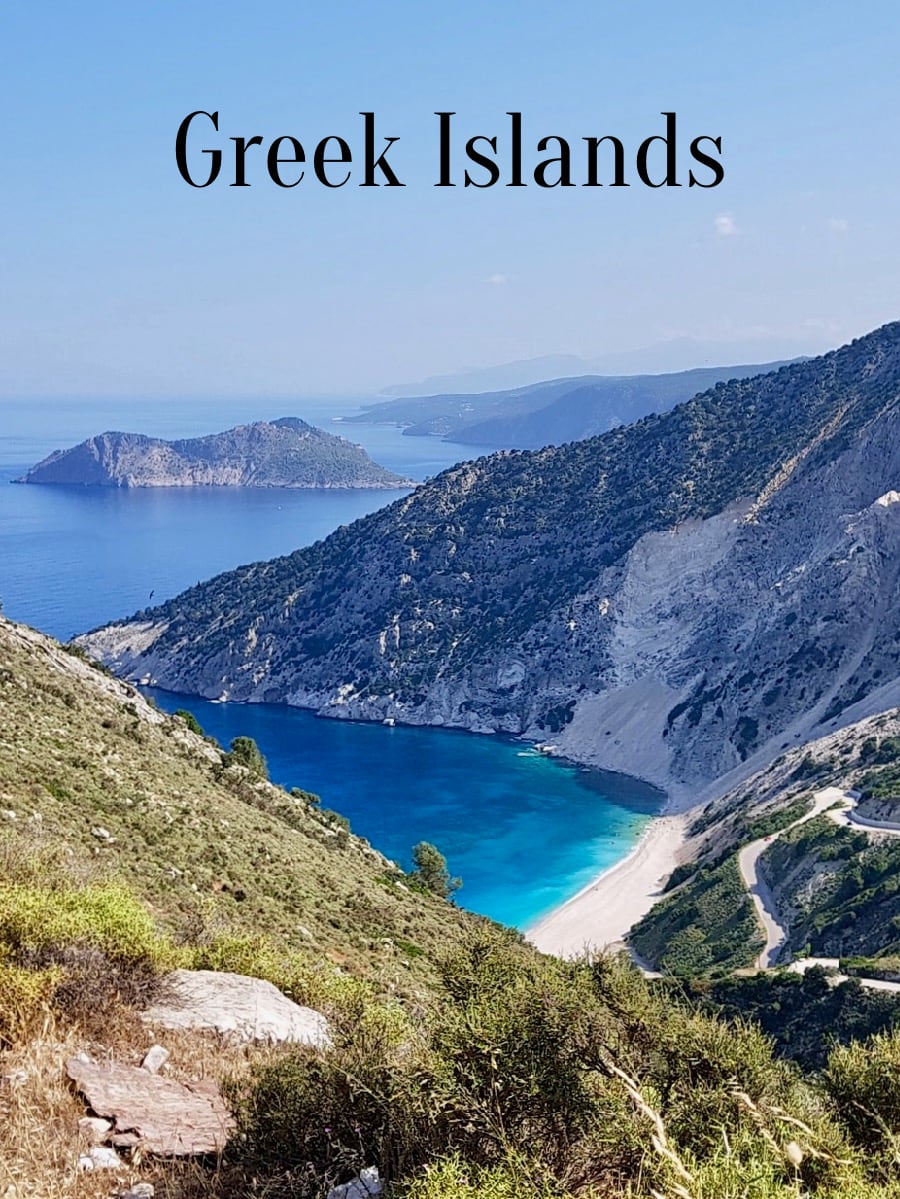
Santorini and Mykonos come to mind immediately when thinking about the Greek Islands.
With 227 inhabited Greek Islands to explore, and the rest, which number from 1200 to 6000 depending on the minimum size you consider, there’s something for everyone.
Once you’ve visited one of the best Greek Islands, you’ll be hooked forever.
11. Halcyon
The English word “halcyon ” describes an idyllically peaceful and perfect time that occurred in the past.

Halcyon means “kingfisher” in Greek.
A halcyon was a legendary bird in Greek Mythology that made its nest on the Aegean Sea. As the daughter of Aeolus, the god of winds, the bird possessed the power to calm the rough winds and waves.
The name of the God of travel deserves a place in the most beautiful Greek travel words for obvious reasons.

In Greek ἕρμα (herma) means “cairn, a pile of stones, boundary marker.”
13. Hodophile
If you love to travel, you can consider yourself a Hodophile.

A lover of roads, one who loves to travel.
This word is derived from Ancient Greek ὁδός (hodós), which means travel.
How can a relatively unknown Greek Island be one of the most beautiful travel words?
Well, it’s all due to one of the most beautiful and famous travel poems of all time.

Ithaka Poem
As you set out for Ithaka hope your road is a long one, full of adventure, full of discovery. …
15. Odyssey
In ancient Greek times, the most famous journey would have to be the one described in Homer’s epic poem “The Odyssey.”
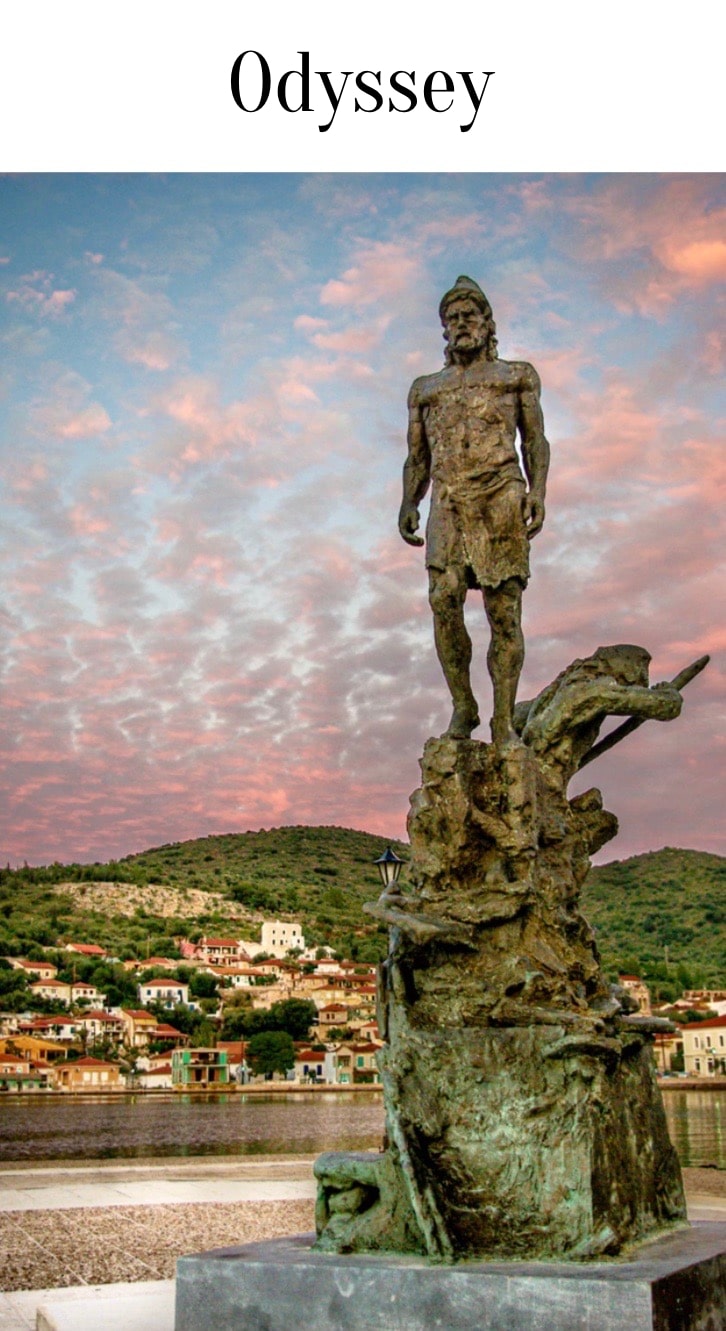
It took the Greek hero Odysseus ten years to return home after the Trojan War had finished.
16. Peripatetic
Someone who wanders from place to place, living a nomadic existence.

This word is traced back to the time of Aristotle and his followers. The philosophers often walked around peripatos (covered walk in the Lyceum) where Aristotle held his lectures.
It comes from the Greek word peripatētikos. From peripatein, meaning “to walk up and down.”
17. Santorini
Beautiful images of Santorini are often used in advertising and tourist brochures to get you thinking about taking a trip to Greece.

Ok, so it’s not a Greek word, but the island is in Greece, and it’s the most beautiful Greek Island in my opinion, so here it has to be.
18. Strikhedonia
If you ever felt like saying to hell with it, then you may be surprised to know that there’s actually a word for it. That word is strikhedonia.

It’s a popular Greek word associated with travel! That’s because many travelers and bloggers have done such a thing. To hell with it! I’ll quit my job and go traveling.
Obviously had to come from the Greeks.
19. Thalassophile
For all of you beach lovers out there, this is what you are, a Thalassophile.
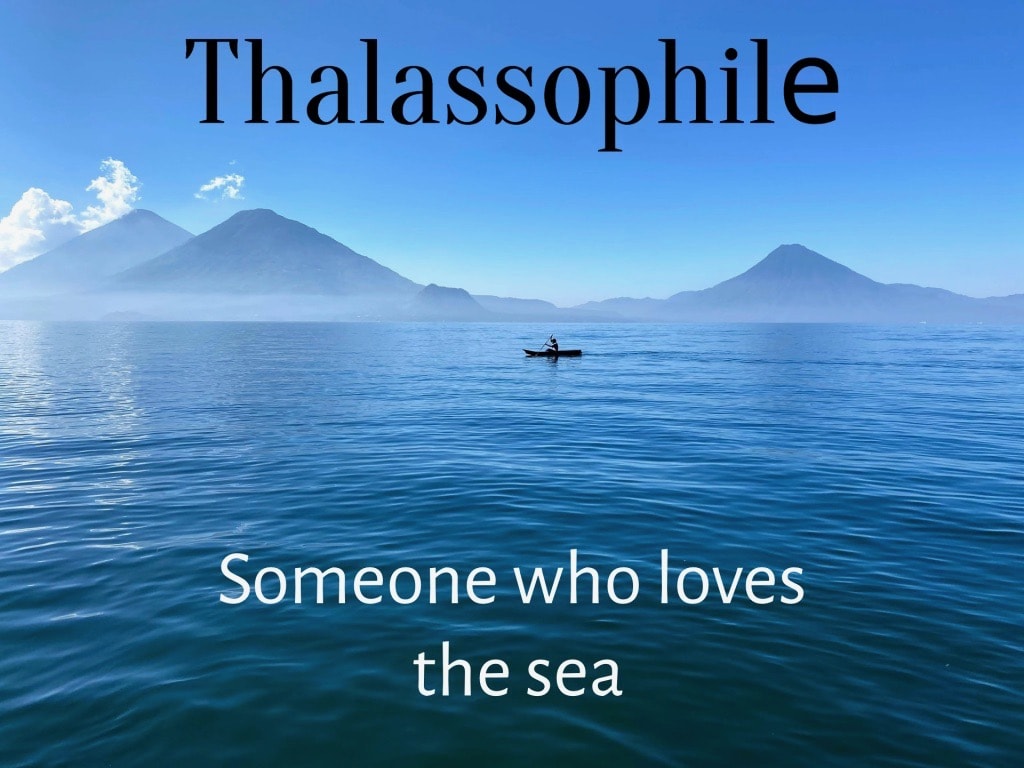
Derived from the Greek words θάλασσα / thalasso (sea), and -phile, from Greek philos ‘loving’.
20. Xenophilia
Someone who is attracted to foreign peoples, foreign cultures, manners, and/or customs.
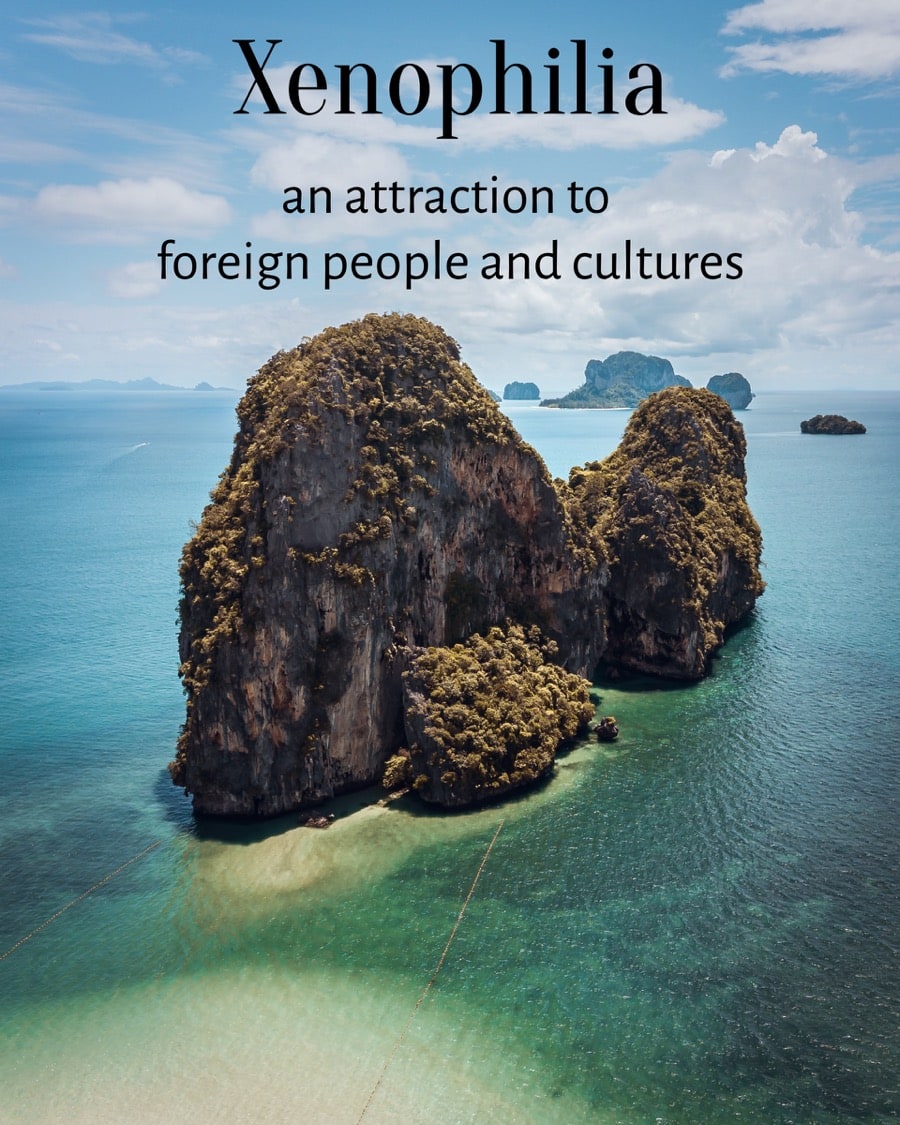
It’s the reason why so many of us pack our bags to go traveling. Foreign things make travel experiences so much more interesting.
This unique travel word comes from the Greek “xenos,” meaning “stranger, unknown, foreign,” and “philia,” defined as “attraction or love.”
The beauty of this word is that it has the opposite meaning of being a Xenophobe.
Xenophobe describes a person that dislikes or is prejudice against people from other countries. No one wants to be known as a Xenophobe.
For this reason, I include Xenophilia as one of the most beautiful travel words.
Travel Words with Greek Origins that missed out
Acatalepsy – the idea that it is impossible to understand anything, which includes travel experiences.
Airplane (Aeroplane) – from the Greek ἀήρ (aēr), “air” and either Latin planus, “level,” or Greek πλάνος (planos), “wandering”.
Anemoia – a nostalgic sense of longing for a past you yourself have never lived. Maybe you were born in the wrong time period, or maybe you love something about a certain decade in time, like the music.
Aragma – The act of chilling. When the Greeks say ‘pame gia aragma spiti sou, ‘it means ‘let’s go chill at your place.’
Cosmopolitan – can be traced back to Pythagoras, who first used the Greek word kosmos to describe the order of the universe.
Erotic – from Eros, the Greek God of desire.
Eunoia – beautiful thinking.
Iris – Goddess of the rainbow.
Meraki – putting a part of yourself (your soul) into what you’re doing with complete focus and love.
Museum – from the nine Muses who presided over the arts and sciences.
Music – literally means the art of the Muses.
Nemophilist – lover of the woods.
Peratzatha – people-watching.
Philoxenia (Filoxenia) – literally translated as “friend to the stranger” / hospitality.
Taxidi – the Greek word for trip or journey.
I’m sure you would have learned a new word or two for this extensive list of beautiful travel words.
Pin it … Share it

RELATED ARTICLES MORE FROM AUTHOR

Yanis Varoufakis: A Bold Comic-Cartoon Dive into Political Satire!

Ubud MONKEY FOREST Travel Guide: Exploring Wildlife, Culture, and More

21 Best BALI Beaches: Nicest, Prettiest to Most Beautiful

Origin of Travel
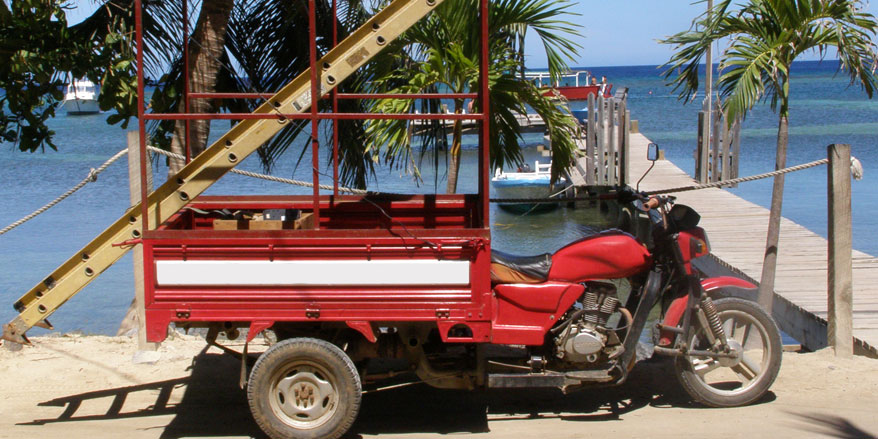
The origin of the word “travel” is most likely lost to history. The term “travel” may originate from the Old French word travail . [3] According to the Merriam Webster dictionary, the first known use of the word travel was in the 14th century. It also states that the word comes from Middle English travailen , travelen (which means to torment, labor, strive, journey) and earlier from Old French travailler (which means to work strenuously, toil). In English we still occasionally use the words travail and travails , which mean struggle. According to Simon Winchester in his book The Best Travelers’ Tales (2004), the words travel and travail both share an even more ancient root: a Roman instrument of torture called the tripalium (in Latin it means “three stakes”, as in to impale). This link reflects the extreme difficulty of travel in ancient times. Also note the torturous connotation of the word “travailler.” Today, travel may or may not be much easier depending upon the destination you choose (i.e., Mt. Everest , the Amazon rainforest ), how you plan to get there ( tour bus , cruise ship , or oxcart ), and whether or not you decide to “rough it (see extreme tourism and adventure travel ). “There’s a big difference between simply being a tourist and being a true world traveler,” notes travel writer Michael Kasum.

Where Does the Concept of Time Travel Come From?
Time; he's waiting in the wings.

The dream of traveling through time is both ancient and universal. But where did humanity's fascination with time travel begin, and why is the idea so appealing?
The concept of time travel — moving through time the way we move through three-dimensional space — may in fact be hardwired into our perception of time . Linguists have recognized that we are essentially incapable of talking about temporal matters without referencing spatial ones. "In language — any language — no two domains are more intimately linked than space and time," wrote Israeli linguist Guy Deutscher in his 2005 book "The Unfolding of Language." "Even if we are not always aware of it, we invariably speak of time in terms of space, and this reflects the fact that we think of time in terms of space."
Deutscher reminds us that when we plan to meet a friend "around" lunchtime, we are using a metaphor, since lunchtime doesn't have any physical sides. He similarly points out that time can not literally be "long" or "short" like a stick, nor "pass" like a train, or even go "forward" or "backward" any more than it goes sideways, diagonal or down.
Related: Why Does Time Fly When You're Having Fun?
Perhaps because of this connection between space and time, the possibility that time can be experienced in different ways and traveled through has surprisingly early roots. One of the first known examples of time travel appears in the Mahabharata, an ancient Sanskrit epic poem compiled around 400 B.C., Lisa Yaszek, a professor of science fiction studies at the Georgia Institute of Technology in Atlanta, told Live Science
In the Mahabharata is a story about King Kakudmi, who lived millions of years ago and sought a suitable husband for his beautiful and accomplished daughter, Revati. The two travel to the home of the creator god Brahma to ask for advice. But while in Brahma's plane of existence, they must wait as the god listens to a 20-minute song, after which Brahma explains that time moves differently in the heavens than on Earth. It turned out that "27 chatur-yugas" had passed, or more than 116 million years, according to an online summary , and so everyone Kakudmi and Revati had ever known, including family members and potential suitors, was dead. After this shock, the story closes on a somewhat happy ending in that Revati is betrothed to Balarama, twin brother of the deity Krishna.
Time is fleeting
To Yaszek, the tale provides an example of what we now call time dilation , in which different observers measure different lengths of time based on their relative frames of reference, a part of Einstein's theory of relativity.
Sign up for the Live Science daily newsletter now
Get the world’s most fascinating discoveries delivered straight to your inbox.
Such time-slip stories are widespread throughout the world, Yaszek said, citing a Middle Eastern tale from the first century BCE about a Jewish miracle worker who sleeps beneath a newly-planted carob tree and wakes up 70 years later to find it has now matured and borne fruit (carob trees are notorious for how long they take to produce their first harvest). Another instance can be found in an eighth-century Japanese fable about a fisherman named Urashima Tarō who travels to an undersea palace and falls in love with a princess. Tarō finds that, when he returns home, 100 years have passed, according to a translation of the tale published online by the University of South Florida .
In the early-modern era of the 1700 and 1800s, the sleep-story version of time travel grew more popular, Yaszek said. Examples include the classic tale of Rip Van Winkle, as well as books like Edward Belamy's utopian 1888 novel "Looking Backwards," in which a man wakes up in the year 2000, and the H.G. Wells 1899 novel "The Sleeper Awakes," about a man who slumbers for centuries and wakes to a completely transformed London.
Related: Science Fiction or Fact: Is Time Travel Possible ?
In other stories from this period, people also start to be able to move backward in time. In Mark Twain’s 1889 satire "A Connecticut Yankee in King Arthur's Court," a blow to the head propels an engineer back to the reign of the legendary British monarch. Objects that can send someone through time begin to appear as well, mainly clocks, such as in Edward Page Mitchell's 1881 story "The Clock that Went Backwards" or Lewis Carrol's 1889 children's fantasy "Sylvie and Bruno," where the characters possess a watch that is a type of time machine .
The explosion of such stories during this era might come from the fact that people were "beginning to standardize time, and orient themselves to clocks more frequently," Yaszek said.
Time after time
Wells provided one of the most enduring time-travel plots in his 1895 novella "The Time Machine," which included the innovation of a craft that can move forward and backward through long spans of time. "This is when we’re getting steam engines and trains and the first automobiles," Yaszek said. "I think it’s no surprise that Wells suddenly thinks: 'Hey, maybe we can use a vehicle to travel through time.'"
Because it is such a rich visual icon, many beloved time-travel stories written after this have included a striking time machine, Yaszek said, referencing The Doctor's blue police box — the TARDIS — in the long-running BBC series "Doctor Who," and "Back to the Future"'s silver luxury speedster, the DeLorean .
More recently, time travel has been used to examine our relationship with the past, Yaszek said, in particular in pieces written by women and people of color. Octavia Butler's 1979 novel "Kindred" about a modern woman who visits her pre-Civil-War ancestors is "a marvelous story that really asks us to rethink black and white relations through history," she said. And a contemporary web series called " Send Me " involves an African-American psychic who can guide people back to antebellum times and witness slavery.
"I'm really excited about stories like that," Yaszek said. "They help us re-see history from new perspectives."
Time travel has found a home in a wide variety of genres and media, including comedies such as "Groundhog Day" and "Bill and Ted's Excellent Adventure" as well as video games like Nintendo's "The Legend of Zelda: Majora's Mask" and the indie game "Braid."
Yaszek suggested that this malleability and ubiquity speaks to time travel tales' ability to offer an escape from our normal reality. "They let us imagine that we can break free from the grip of linear time," she said. "And somehow get a new perspective on the human experience, either our own or humanity as a whole, and I think that feels so exciting to us."
That modern people are often drawn to time-machine stories in particular might reflect the fact that we live in a technological world, she added. Yet time travel's appeal certainly has deeper roots, interwoven into the very fabric of our language and appearing in some of our earliest imaginings.
"I think it's a way to make sense of the otherwise intangible and inexplicable, because it's hard to grasp time," Yaszek said. "But this is one of the final frontiers, the frontier of time, of life and death. And we're all moving forward, we're all traveling through time."
- If There Were a Time Warp, How Would Physicists Find It?
- Can Animals Tell Time?
- Why Does Time Sometimes Fly When You're NOT Having Fun?
Originally published on Live Science .
Adam Mann is a freelance journalist with over a decade of experience, specializing in astronomy and physics stories. He has a bachelor's degree in astrophysics from UC Berkeley. His work has appeared in the New Yorker, New York Times, National Geographic, Wall Street Journal, Wired, Nature, Science, and many other places. He lives in Oakland, California, where he enjoys riding his bike.
Science news this week: Spiders on Mars and an ancient Egyptian sword
Van Gogh's 'Starry Night' contains surprisingly accurate physics — suggesting he understood the hidden 'dynamism of the sky'
'We have changed the view of our galaxy forever': Astronomers capture most detailed ever infrared map of the Milky Way
Most Popular
- 2 Watch extremely rare footage of a bigfin squid 'walking' on long, spindly arms deep in the South Pacific
- 3 'The secret to living to 110 was, don't register your death': Ig Nobel winner Saul Justin Newman on the flawed data on extreme aging
- 4 New self-swab HPV test is an alternative to Pap smears. Here's how it works.
- 5 Nuking an asteroid could save Earth from destruction, researchers show in 1st-of-its-kind X-ray experiment
- Daily Crossword
- Word Puzzle
- Word Finder
- Word of the Day
- Synonym of the Day
- Word of the Year
- Language stories
- All featured
- Gender and sexuality
- All pop culture
- Writing hub
- Grammar essentials
- Commonly confused
- All writing tips
- Pop culture
- Writing tips
Advertisement
[ trav - uh l ]
verb (used without object)
to travel for pleasure.
- to move or go from one place or point to another.
- to proceed or advance in any way.
- to go from place to place as a representative of a business firm.
He travels in a wealthy crowd.
- Informal. to move with speed.
- to pass, or be transmitted, as light or sound.
- Basketball. (of a player in possession of the ball) to take more than two steps without dribbling or passing the ball.
- to move in a fixed course, as a piece of mechanism.
verb (used with object)
- to travel, journey, or pass through or over, as a country or road.
We traveled a hundred miles.
to travel logs downriver.
to travel to other planets.
to set out on one's travels.
a book of travels.
- such an account or work.
an increase in travel on state roads.
- Basketball. an instance of traveling with the ball.
- the complete movement of a moving part, especially a reciprocating part, in one direction, or the distance traversed; stroke.
- length of stroke.
to reduce the travel of food from kitchen to table.
a travel alarm clock.
/ ˈtrævəl /
she travelled across France
he travels to improve his mind
he travelled the country
- to go, move, or cover a specified or unspecified distance
to travel in textiles
- (esp of perishable goods) to withstand a journey
the sound travelled for miles
- to progress or advance
- basketball to take an excessive number of steps while holding the ball
- (of part of a mechanism) to move in a fixed predetermined path
that car certainly travels
- informal. often foll by with to be in the company (of); associate
- the act of travelling
a travel brochure
- usually plural a tour or journey
- the distance moved by a mechanical part, such as the stroke of a piston
- movement or passage
Spelling Note
Other words from.
- travel·a·ble adjective
- non·travel·ing adjective
- non·travel·ling adjective
- outtravel verb (used with object) outtraveled outtraveling or (especially British) outtravelled outtravelling
- pre·travel noun verb pretraveled pretraveling or (especially British) pretravelled pretravelling
- un·travel·ing adjective
- un·travel·ling adjective
Word History and Origins
Origin of travel 1
Example Sentences
López said she could not travel to Mexico because she is undocumented.
Sound waves traveling thousands of kilometers through the ocean may help scientists monitor climate change.
Biden traveled to the state days later, meeting with the Blake family and calling for unity and healing in the community, though he, too, denounced the violence that followed the shooting.
TripActions says it has added nearly 500 new corporate customers since March, a surprising achievement at a time when most employees are still not traveling freely.
The Covid-19 coronavirus pandemic, which was first identified in China in December, has had sweeping effects in the public health, business, and travel sectors, among others.
You just travel light with carry-on luggage, go to cities that you love, and get to hang out with all your friends.
He did travel to China and Australia while the story was unfolding.
In doing so he exposed the failure of other airlines in the region to see the huge pent-up demand for cheap travel.
“The tribe is really made of people who put travel as a priority in their entire lifestyle,” says Evita.
Brands like Lo & Sons and Delsey are already tapping Travel Noire to connect with black travelers.
One thing was certain: Grandfather Mole could travel much faster through the water than he could underground.
The mothers know better than any one else how hard a way the little girl will have to travel through life.
He could lie in bed and string himself tales of travel and adventure while Harry was downstairs.
Under ordinary circumstances these men can travel with their burden from twenty to thirty miles a day.
The rules regulating travel on highways in this country are called, "the law of the road."
Related Words
- sightseeing
Tourism – Definition, Types & Forms, History & Importance of Tourism
Tourism is one of the world’s fastest-growing industries and a major foreign exchange and employment generation for many countries. It is one of the most remarkable economic and social phenomena.
The word ‘tour’ is derived from the Latin word tornus, meaning ‘a tool for making a circle.’ Tourism may be defined as the movement of people from their usual place of residence to another place ( with the intention to return) for a minimum period of twenty-four hours to a maximum of six months for the sole purpose of leisure and pleasure.
According to WTO (1993), ” Tourism encompasses the activities of persons traveling and staying in places outside their usual environment for not more than one consecutive year for leisure, business, and other purposes.”
The Rome conference on tourism in 1963 defined tourism as ‘ a visit to a country other than one’s own or where one usually resides and works. This definition, however, did not take into account domestic tourism, which has become a vital money-spinner and job generator for the hospitality industry.
The UNWTO defines tourists as ‘ people who travel to and stay in place outside their usual environment for not more than one consecutive year for leisure, business and other purposes not related to the exercise of an activity remunerated from within the place visited.
According to the Tourism Society of Britain ,” tourism is the temporary short-period movement of people to destination outside the places where they usually live, work; and activities during their stay at these destinations.” This definition includes the movement of people for all purposes.
The development of technology and transportation infrastructure, such as jumbos jets, low-cost airlines, and more accessible airports, have made tourism affordable and convenient. There have been changes in lifestyle – for example, now retiree-age people sustain tourism around the year. The sale of tourism products on the internet, besides the aggressive marketing of the tour operators and travel agencies , has also contributed to the growth of tourism.
27 September is celebrated as world tourism every year. This date was chosen as on that day in 1970, the Statutes of UNWTO were adopted. The purpose of this day is to raise awareness of the role of tourism within the international community.
History of Travel and Tourism
Inbound tourism, outbound tourism, domestic tourism, forms of tourism, classification of tourism, nature of tourism, importance of tourism, economic impacts, social impacts, cultural impacts, environmental impact, industries related to tourism, tourism products.
Travel is as old as mankind on earth. At the beginning of his existence, man roamed about the planet’s surface in search of food, shelter, security, and better habitat. However, with time, such movements were transformed into wanderlust.
About five thousand years ago, climate changes, dwindling food and shelter conditions hostile invaders made the people leave their homes to seek refuge elsewhere like the Aryans left their homes in Central Asia due to climate changes. Perhaps, this leads to the development of commerce, trade, and industry.
Religion, education, and cultural movement began during the Hindu and Chinese civilizations. Christian missionaries, Buddhist monks, and others traveled far and wide carrying religious messages and returned with fantastic images and opinions about alien people.
For centuries movement of people continued to grow due to the efficiency of transport and the assistance and safety with which the people could travel. By the end of the 15th century, Italy had become Europe’s intellectual and cultural center. It represented the classical heritage both for the intelligentsia and the aristocracy.
During the 16th century, travel came to be considered an essential part of the education of every young Englishman. Travel thus became a means of self-development and education in its broadest sense. The educational travel was known as the ‘ Grand Tour .’
The industrial revolution brought about significant changes in the pattern and structure of British society. Thus, the economy of Britain was greatly responsible for the beginning of modern tourism. It also created a large and prosperous middle class. Because of remarkable improvement in transportation systems in the latter half of the 18th century and the first quarter of the 19th century, an increasing number of people began to travel for pleasure.
Travel was inspired initially by the need for survival (food, shelter, and security), the desire to expand trade, and the quest to conquer. As the transportation system improved, the curiosity for transforming the vast and virgin world into a close neighborhood created a new industry, i.e., Travel and Tourism .
However, the developments of rails, roads, steamships, automobiles, and airplanes helped to spread technology across the globe. Earlier travel was a privilege only for wealthy people, but with the industrial revolution, the scenario altogether changed. Transportation, as well as accommodation, became affordable to middle and working-class citizens.
Essentially, with the development of jet travel, communication, new technology, tourism, and travel became the world’s largest and fastest-growing industry.
Travel and tourism have recently emerged as a dominant economic force on the global scene, accounting for more than 12% of total world trade and growing at 8 percent annually.
Types of Tourism
Tourism has two types and many forms based on the purpose of visit and alternative forms of tourism. Tourism can be categorized as international and domestic tourism .
Tourism has two types and various forms. Based on the movement of people, tourism is categorized into two kinds. These are the following:
International Tourism
When people visit a foreign country, it is referred to as International Tourism . To travel to a foreign country, one needs a valid passport, visa, health documents, foreign exchange, etc.
International tourism is divided into two types; Inbound Tourism & Outbound Tourism.
This refers to tourists of outside origin entering a particular country. Traveling outside their host/native country to another country is called inbound tourism for the country where they are traveling. For example, when a tourist of Indian origin travels to Japan, it is Inbound tourism for Japan because foreign tourists come to Japan.
This refers to tourists traveling from the country of their origin to another country. When tourists travel to a foreign region, it is outbound tourism for their own country because they are going outside their country. For example, when a tourist from India travels to Japan, it is outbound tourism for India and Inbound tourism for Japan.
The tourism activity of the people within their own country is known as domestic tourism . Traveling within the same country is easier because it does not require formal travel documents and tedious formalities like compulsory health checks and foreign exchange. A traveler generally does not face many language problems or currency exchange issues in domestic tourism.
Tourism has various forms based on the purpose of the visit and alternative forms. These are further divided into many types according to their nature. Forms of tourism are the following:
Some most basic forms of tourism are the following:
- Adventure Tourism
- Atomic Tourism
- Bicycle Tours
- Beach Tourism
- Cultural Tourism
- Industrial Tourism
- Medical Tourism
- Religious Tourism
- Rural Tourism
- Sex Tourism
- Space Tourism
- Sports Tourism
- Sustainable Tourism
- Virtual Tourism
- War Tourism
- Wildlife Tourism
Tourism can be classified into six distinct categories according to the purpose of travel. These are the following:
1) Recreational : Recreational or leisure tourism takes a person away from the humdrum of everyday life. In this case, people spend their leisure time in the hills, sea beaches, etc.
2) Cultural tourism satisfies cultural and intellectual curiosity and involves visits to ancient monuments, places of historical or religious importance, etc.
3) Sports/Adventure : Trips taken by people with a view to playing golf, skiing and hiking, fall within this category.
4) Health : Under this category, people travel for medical, treatment or visit places where there are curative possibilities, for example, hot springs, spa yoga, etc.
5) Convention Tourism : It is becoming an increasingly important component of travel. People travel within a country or overseas to attend conventions relating to their business, profession, or interest.
6) Incentive Tourism : Holiday trips are offered as incentives by major companies to dealers and salesmen who achieve high targets in sales. This is a new and expanding phenomenon in tourism, These are in lieu of cash incentives or gifts, Today incentive tourism is a 3 billion dollar business in the USA alone.
Tourism as a socio-economic phenomenon comprises the activities and experiences of tourists and visitors away from their home environment and are serviced by the travel and tourism industry and host destination. The sum total of this activity experience and services can be seen as a tourism product.
The tourism system can be described in terms of supply and demand. Tourism planning should strive for a balance between demands and supply. This requires an understanding not only of market characteristics and trends but also of the planning process to meet the market needs.
Often tourists from core generating markets are identified as the demand side; the supply side includes all facilities, programs, attractions, and land uses designed and managed for the visitors. These supply-side factors may be under the control of private enterprises, non-profit organizations, and the government. New and innovative forms of partnerships are also evolving to ensure the sustainable development and management of tourism-related resources.
The supply and demand side can be seen to be linked by flows of resources such as capital, labor, goods, and tourist expenditures into the destination, and flows of marketing, promotion, tourist artifacts, and experiences from the destination back into the tourist generating region.
In addition, some tourist expenditures may leak back into the visitors generating areas through repatriation of profits of foreign tourism investors and payment for improved goods and services provided to tourists at the destination. Transportation provides an important linkage both to and from the destination.
For planning purposes, the major components that comprise the supply side are:
- Various modes of transportation and other tourism-related infrastructure.
- Tourist information.
- Marketing and promotion.
- The community of communities within the visitor’s destination area.
- The political and institutional frameworks for enabling tourism.
The tourism system is both dynamic and complex due to many factors linked to it and because of the existence of many sectors contributing to its success. These factors and sectors are linked to the provision of the tourist experience and the generation of tourism revenue and markets .
The dynamic nature of the tourism system makes it imperative to scan the external and internal environment of the destinations on a regular basis so as to make changes when necessary to ensure a healthy and viable tourism industry.
Thus, it is now an accepted fact that tourism development can no longer work in isolation of the environment and the local communities, nor can it ignore the social and cultural consequences of tourism.
Tourism and hospitality , which are inextricably linked to each other, are among the major revenue-earning enterprises in the world. They happen to be among the top employers too. There has been an upmarket trend in tourism over the last few decades as travel has become quite common. People travel for business, vacation, pleasure, adventure, or even medical treatments.
Tourism constitutes an important industry today. It has opened up new vistas for the play of economic emancipation. It provides a very potent contribution by strengthening and developing the financial resources of a country. Moreover, it is a process in which mutual material and mental benefits occur. Furthermore,
- Tourism fetches foreign exchange in the form of invisible exports, which results in the manifold progress of the nation.
- Tourism generates jobs. These employments are the main contribution of tourism to generating national income. But one should remember that employment in the tourism industry is often seasonal.
- Tourism often leads to the commercialization of art forms and especially handicrafts. Art items with cultural or religious meaning are sought by tourists as souvenirs. As more and more tourists visit a destination, souvenir production has increased, often leading to mass production. This production also generates income.
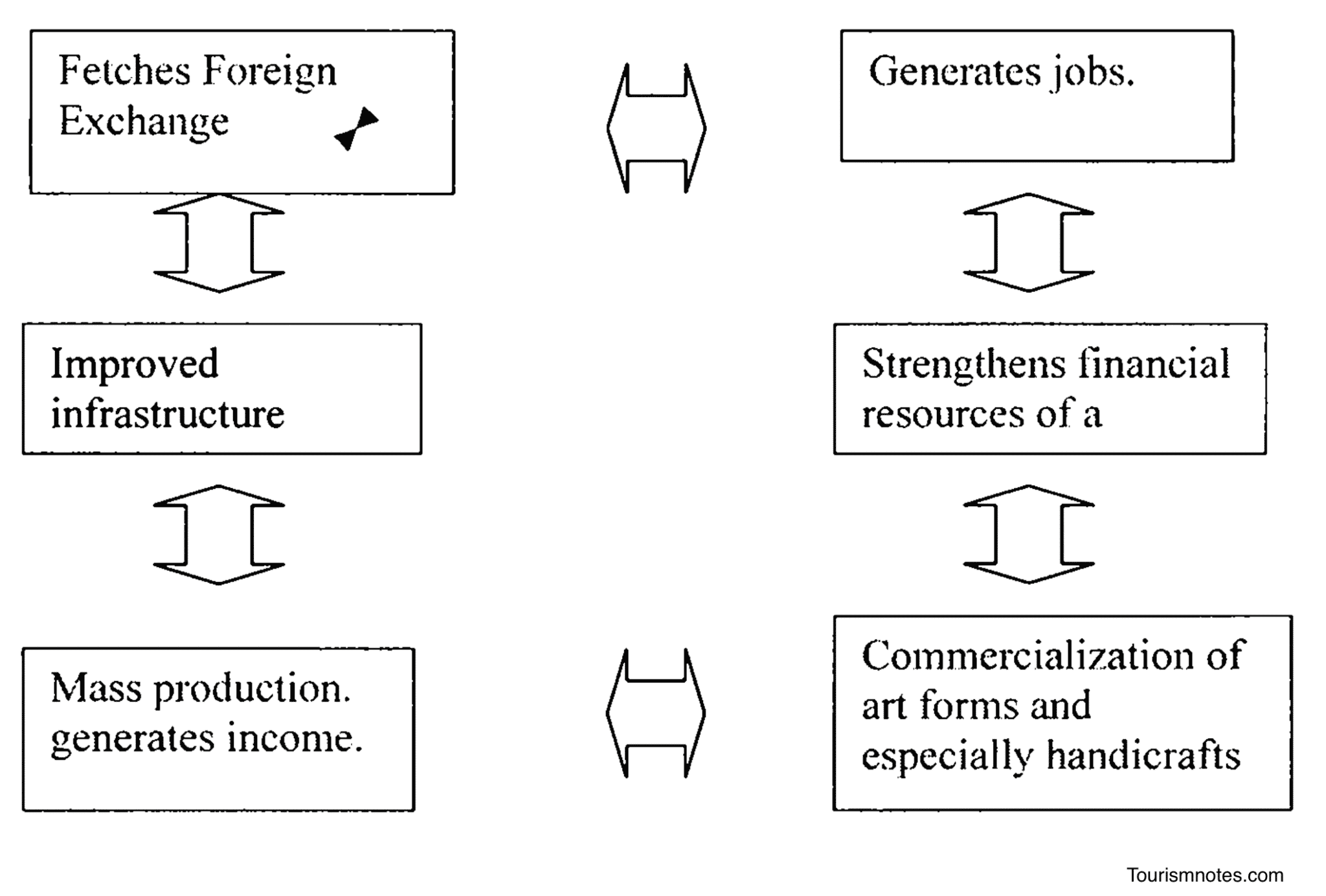
With several business-related activities associated with tourism, the industry has a tremendous potential to generate employment as well as earn foreign exchange. Many countries, such as Mauritius, Malaysia, Singapore, Fiji, and the Caribbean, whose economies are primarily driven by tourism. Tourism can contribute to the economic growth of a country in the followings ways:
Employment Generation
It creates a large number of jobs among direct services providers (such as hotels , restaurants, travel agencies , tour operators , guide and tour escorts, etc.) and among indirect services providers (such as suppliers to the hotels and restaurants, supplementary accommodation, etc.)
Infrastructure Development
Tourism spurs infrastructure development. In order to become an important commercial or pleasure destination, any location would require all the necessary infrastructure, like good connectivity via rail, road, and air transport , adequate accommodation, restaurants, a well-developed telecommunication network, and, medical facilities, among others.
Foreign Exchange
The people who travel to other countries spend a large amount of money on accommodation, transportation, sightseeing, shopping, etc. Thus, an inbound tourist is an important source of foreign exchange for any country.
The World Travel and Tourism Council (WTTC) predict in 1997 that the twenty-first-century economy would be dominated by three industries: telecommunications, information technology, and tourism. The travel and tourism industry has grown by 500 percent in the last 25 years.
Now withstanding this bright outlook and prospects, the tourism and hospitality industries are very vulnerable to the fluctuations of national economies and happenings in the world, especially terrorist attacks that have at times dealt severe blows to business.
In recent years, there have been a few setbacks in tourism, such as the terrorist siege of the Taj and Oberoi in Mumbai, India (26 November 2008); the attack on the World Trade Centre in the United States of America (11 September 2001); bombing in a hotel on the Indonesian island of Bali (12 October 2002); tsunami in Southeast Asia and South Asia on 26 December 2004, in which thousands of the lives where lost and consequently tourism was hit. Nonetheless, the sector is now getting back to business.
Impacts of Tourism
Tourism is a multi-dimensional activity. The scope of tourism activities is so wide and varied that it cannot be restricted to any particular field of activity. Tourism has ramifications in almost all sectors and is influenced by the performance of each of these sectors directly or indirectly. Tourism in any country can be an apt reflection of the nation’s economic and social endowment apart from its natural wealth.
Tourism has vast potential to bring about changes in the country’s economic, environmental, societal, and cultural edifice. Tourism has two basics: the supply of facilities and the demand for participation. The twin market forces of supply and demand interact to produce tourism patterns. These patterns are associated with economic, social, cultural, environmental, and ecological impacts.
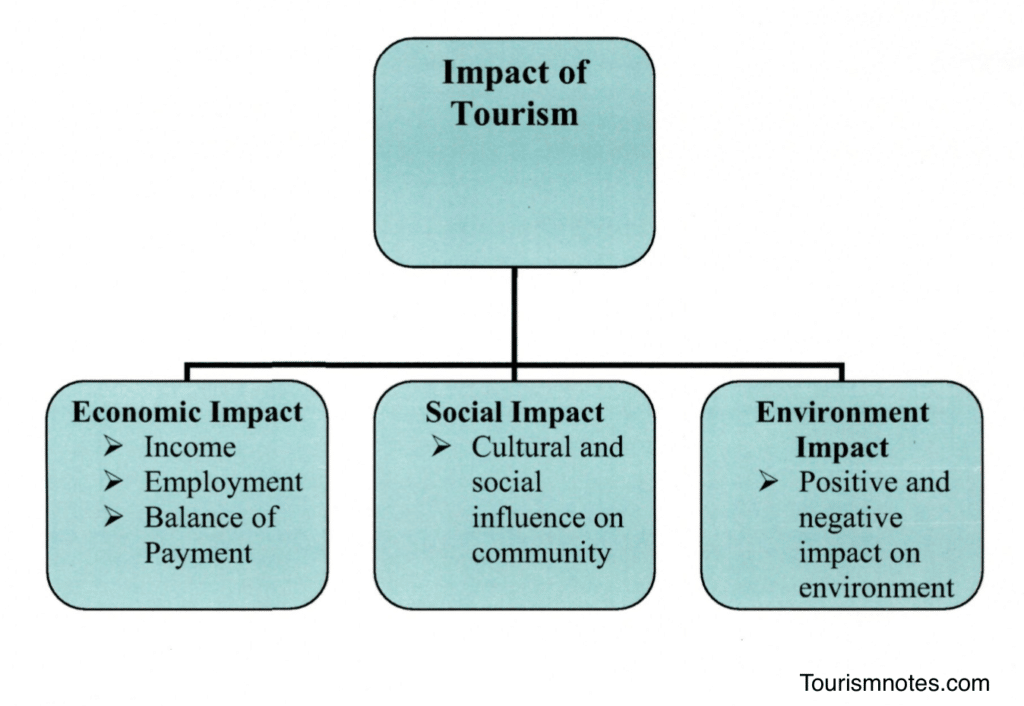
Establishing or developing a tourism industry involves expenditure, gains, costs, and benefits. If these impacts are considered from the outset of planning, strengths and opportunities can be maximized while weaknesses and threats can be minimized.
Each destination will be different in terms of tourism characteristics . The cost and benefits of tourism will vary in each destination and can change over time, depending on tourism and other activities in a destination’s local and regional context.
Tourism activities impact the economy of the country as well as the local economy of the destination.
Economics Benefits
- Tourism generates local employment, directly in the tourism sector and in the support and resource management sectors.
- Tourism stimulates profitable domestic industries, hotels and other lodging facilities, restaurants and food services, transportation systems, handicrafts, and guide services.
- Tourism generates foreign exchange for the country and injects capital and new money into the local economy.
- Tourism helps to diversify the local economy.
- Improved tourism infrastructure.
- Increase tax revenues from tourism.
Economic Costs
- Higher demand created by tourism activity may increase the price of land, housing, and a range of commodities necessary for daily life.
- Demands for health services provision and police service increase during the tourist seasons at the expense of the local tax base.
Tourism also affects the society of the destination in good as well as bad ways. It benefits and costs the local communities.
Social Benefits
- The quality of a community can be enhanced by economic diversification through tourism.
- Recreational and cultural facilities created for tourism can be used by local communities as well as domestic/international visitors.
- Public space may be developed and enhanced through tourism activity.
- Tourism Enhances the local community’s esteem and provides an opportunity for greater understanding and communication among people of diverse backgrounds.
Social Costs
- Rapid tourism growth can result in the inability of local amenities and institutions to meet service demands.
- Without proper planning and management, litter, vandalism, and crime often accompany tourism development.
- Tourism can bring overcrowding and traffic congestion.
- Visitors bring with them material wealth and apparent freedom. The youths of the host community are particularly susceptible to the economic expectations these tourists bring which can result in complete disruption of traditional community ways of life.
- The community structure may change, e.g. community bonds, demographics, and institutions.
- The authenticity of the social and cultural environment can be changed to meet tourism demands.
Tourism activities also affect the culture of the host country. There are many positive and negative cultural impacts of tourism.
Cultural Benefits
- Tourism can enhance local cultural awareness.
- Tourism can generate revenue to help pay for the preservation of archaeological sites, historic buildings, and districts.
- Despite criticism about the alteration of cultures to unacceptable levels, the sharing of cultural knowledge and experience can be beneficial for hosts and guests of tourism destinations and can result in the revival of local traditions and crafts.
Cultural Costs
- Youth in the community begin to emulate the speech and attire of tourists.
- Historic sites can be damaged through tourism development and pressures.
- There can be long-term damage to cultural traditions and the erosion of cultural values, resulting in cultural change beyond a level acceptable to the host destination.
Tourism impacts the environment in positive as well as negative ways. These impacts are following below.
Environmental Benefits
- Parks and nature preserves may be created and ecological preservation supported as a necessity for nature-based tourism.
- Improved waste management can be achieved.
- Increased awareness and concern for the environment can result from nature-based tourism activities and development.
Environmental Costs
- A negative change in the physical integrity of the area.
- Rapid development, over-development, and overcrowding can forever change the physical environment and ecosystems of an area.
- Degradation of parks and preserves.
Over the years, tourism has become a popular global activity. Depending upon the nature and purpose of their travel, tourists, need and demand certain facilities and services. This has given rise to a wide range of commercial activities that have acquired industry proportions. Thus travel and tourism nowadays represent a broad range of related industries.
Hotels are a commercial establishment that provides accommodation, meals, and other guest services. In the travel and tourism industry, the hotel industry plays a very significant role, as all tourists need a place to stay at their destinations, and require many more services and facilities to suit their specific needs and tastes.
Restaurants
Restaurants are retail establishments that serve prepared food and beverages to customers. In the travel and tourism industry, restaurants and other food and beverage outlets are very important as tourists like to experiment with the local cuisines of the places they are visiting.
Retail and Shopping
The retail industry is very important as tourists shop for their day-to-day necessities as well as look for mementos and souvenirs. In recent years, some cities in the world have been promoted as shopping destinations to attract people with a penchant for shopping by offering various products, such as garments, electronic goods, jewelry, and antiques. New York, Paris, London, and Milan in Italy are famous as fashion havens of the world.
Transportation
It is the movement of people and goods from one place to another. A well-developed transport industry, as well as infrastructure, is integral to the success of any travel and tourism enterprise.
Travel Agencies
A travel agency is a retailing business that sells travel-related products and services, particularly package tours, to customers on the behalf of suppliers such as airlines, car rentals, cruise liners, hotels, railways, and sightseeing.
Travel agencies play a very important role as they plan out the itinerary of their clients and make the necessary arrangements for their travel, stay, and sightseeing, besides facilitating their passport, visa, etc.
Tour Operators
A tour operator assembles the various elements of a tour. It typically combines tour and travel components to create a holiday. Tour operators play an important role in the travel and tourism industry.
Tourist Destinations
A tourist attraction is a place of interest for tourists, typically for its inherent or exhibited cultural value, historical significance, nature or building beauty or amusement opportunities. These are the basic fundamentals of the tourism industry.
Cultural Industries
Cultural or creative industries are responsible for the creation, production, and distribution of goods and services that are cultural in nature and usually protected by intellectual property rights. As tourists like to visit places of cultural significance and soak in the culture of the area, the cultural industry is very important to travel and tourism.
Leisure, Recreation, and Sport
Leisure or free time is a period of time spent out of work and essential domestic activity. Recreation or fun is spending time in a manner designed for therapeutic refreshment of the body or mind. While leisure is more like a form of entertainment or rest, recreation requires active participation in a refreshing and diverting manner.
As people in the world’s wealthier regions lead an increasingly sedentary lifestyle, the need for recreation has increased. These play a significant role in the travel and tourism sector.
A tourism/tourist product can be defined as the sum of the physical and psychological satisfaction it provides to tourists, during their ‘traveling and sojourn’ en route at the destinations.
Since the travel and tourism industry is an agglomeration of too many sectors that promote travel-related services. These sectors are referred to as travel vendors and their services and goods are called ‘travel products’. A tourism product includes five main components such as physical plant, services, hospitality, freedom of choice, and a sense of involvement.
Thus, whatever the natural and man-made resources and services brought about the consumption of tourists are called tourism products .
Charecterstatics Of Tourism Products
By now, you must have understood what a tourism product is. Now let us look at some of its characteristics:-
1) Intangible : Tourism is an intangible product means tourism is such a kind of product that can not be touched or seen and there is no transfer of ownership, But the facilities are available for a specified time and for a specified use. For e.g. a room in the hotel is available for a specified time.
2) Psychological : The main motive to purchase a tourism products is to satisfy the psychological need after using the product, by getting an experience while interacting with a new environment. And experiences also motivate others to purchase that product.
3) Highly Perishable : Tourism product is highly perishable in nature means one can not store the product for a long time. Production and consumption take place while a tourist is available. If the product remains unused, the chances are lost i.e. if tourists do not purchase it.
A travel agent or tour operator who sells a tourism product cannot store it. Production can only take place if the customer is actually present. And once consumption begins, it cannot be stopped, interrupted, or modified. If the product remains unused, the chances are lost i.e. if tourists do not visit a particular place, the opportunity at that time is lost. It is due to tourism reason that heavy discount is offered by hotels and transport-generating organizations during the offseason.
4) Composite Product : Tourist product is a combination of different products. It has not a single entity in itself. In the experience of a visit to a particular place, various service providers contribute like transportation The tourist product cannot be provided by a single enterprise, unlike a manufactured product.
The tourist product covers the complete experience of a visit to a particular place. And many providers contribute to the tourism experience. For instance, the airline supplies seats, a hotel provides rooms and restaurants, travel agents make bookings for stay and sightseeing, etc.
5) Unstable Demand : Tourism demand is influenced by seasonal, economic political, and other factors. There are certain times of the year that see greater demand than others. At these times there is a greater strain on services like hotel bookings, employment, the transport system, etc.
The Travel Glossary - find the best Terms, Definitions and Acronyms
Travel terms, glossary, definitions and acronyms of the travel industry from A – Z. Click on a letter to see the terms and descriptions in our glossary.
A B C D E F G H I J K L M N O P Q R S T U V W X Y Z
Add-collect, adjoining room.
Average Daily Rate. A hotel industry term used to calculate average hotel room rate. Equal to room revenue divided by rooms sold.
advance purchase
The advance time before travel that a fare requires a ticket to be issued, normally 3,7,14 or 21 days.
Agent Error. An incorrect entry made by a consultant during the reservation process.
AEA (see “Association of European Airlines”)
A US based travel agency that has entered into an agreement with BCD Travel to use the BCD Travel trademarks and provide travel services to customers in the affiliate’s territory.
Airlines Reporting Corporation (ARC)
An independent corporation jointly owned by most of the major United States airlines; ARC collects payments for tickets sold by travel agencies and distributes the monies to the airlines; ARC also governs appointment of travel agencies to sell domestic air transportation.
airport code
The three-letter code used by airlines and the air travel industry to identify airports around the world, e.g. LHR=London Heathrow, JFK=New York John F. Kennedy. http://www.world-airport-codes.com/
airport security check
Airport security checks are procedures and measures for screening passengers and baggage to ensure security against terrorist threats and other dangers. Find out how to get through quickly
airport tax
Tax levied by certain airports throughout the world. In many cases this can be built into the total ticket price, although some airlines will not co-operate, thus making payable locally by the passenger.
On outbound journey’s, airside includes all those areas of the airport terminal after you have passed through passport control. On inbound journey’s, airside includes all those areas of the terminal before you pass through passport control.
A short-hop aircraft for up to 20 passengers, usually flying unscheduled services with a 200 / 500-mile range.
all-inclusive
A hotel program which usually includes all meals, snacks, beverages and activities.
A joint partnership between specified carriers which may include, but not limited to, interlining, code-sharing, joint frequent flyer program participation, and even equity participation of stock ownership.
The National Railroad Passenger Corporation, a government-subsidized corporation that operates all passenger train service in the United States.
Automatic Number Identification. A contact center term for a telephone network feature that passes that number of the phone the caller is using to the contact center, real-time.
American Plan. A hotel rate that includes breakfast and dinner, sometimes lunch.
Asia Pacific. A geographical term used interchangeably with ASPAC and often used in reference to the entire Asian market.
Advance Purchase Excursion Fare
applicable fare
The fare to be applied.
Accounts Receivable. Money which is owed by a customer to a company for products or services provided on credit.
ARC (see “Airlines Reporting Corporation”)
An eight-digit identification number issued by ARC to travel agencies who have met accreditation standards.
Arrival Unknown. An ARNK is added to a reservation when there is a break in the itinerary and continuity is not recognized; it does count as a segment when ticketing.
Around-the-world
A continuous journey circumnavigating the globe in one general west-to-east or east-to-west direction in which both the Pacific and Atlantic Oceans are crossed not more than once each.
ARR (see “Average room rate”)
Asia South Pacific. A geographic term used interchangeably with APAC.
Automated Ticket & Boarding Pass. IATA standard transportation ticket and combined boarding pass which features a magnetic strip containing passenger and journey details.
Average Ticket Price. The average price of all tickets purchased; domestic and international are sometimes calculated separately.
availability
The total number of seats allowed to be sold at a particular rate.
average room rate (ARR)
Ratio of hotel’s sales revenue to the number of occupied rooms.
back-to-back ticketing
An against-the-rules practice whereby a traveler books a return ticket nested inside another return ticket to avoid minimum stay requirements for the purpose of saving money. For example, the traveler uses the first ticket to fly from origin to destination on Monday in week 1, then he uses the second ticket to fly from destination to origin on Friday in week 1 and back to destination on Monday in week 2, and then he uses the first ticket again to fly back to origin on Friday in week 2. The normal Saturday night stay requirement is then avoided. While this will sometimes save money, most airlines do not allow this practice and doing so might result in penalties.
backtracking
Having to return to your original airport of entry in a country to make the return trip home. A time-consuming and costly procedure to overcome by arranging an op-jaw itinerary, which allows you to fly out to one point and return from another.
Carry-on-baggage and checked baggage have many restrictions. Most notable are the number and size of the baggage. Many airlines allow only 1 carry-on bag, plus one personal item (purse, back-pack, computer bag). For checked baggage restrictions and fees, refer to the carrier’s website for details.
banker’s buying rate (BBR)
Exchange rate used to convert from one currency to another; called the ‘buying rate’ because it is the rate used when banks purchase currency from an individual
banker’s selling rate (BSR)
Exchange rate used to convert from one currency to another; called the ‘buying rate’ because it is the rate used when banks sell currency to an individual
Best Available Rate. A hotel industry pricing method for yielding room rates (floating) based on demand while ensuring the best rate is presented for sale to agents, consumers.
A fare without tax.
Measurement of hotel occupency.
blackout dates
Certain dates or periods when travel on specific fares is not permitted (usually holidays).
blocked space
Multiple reservations, often subject to deposit forfeiture, which wholesalers or travel agents make with a supplier in anticipation of resale.
boarding pass
A permit to board a ship, plane, or other form of transportation. In the case of air travel, the card indicates boarding gate and aircraft seat number.
booking code
A letter code used to make an airline reservation at a particular fare level in a computerized reservation system. (CRS/GDS)
Bank Settlement Plan. Outside the USA, a system by which the travel agent community pays carriers for tickets it issues.
Business Travel Account. If a company has a corporate credit card program where certain purchases such as air, rail, and associated transaction fees are centrally billed to one “master” credit card number, this is referred to as the Business Travel Account (BTA). This account allows for the purchase of certain air travel expenses for corporate employees without the need to issue individual credit cards to each traveler for the designated expenses. Because the account has no physical card, it’s often called a “ghost card.”
BTC (see “Business Travel Center”)
Business Travel News. A travel industry publication that delivers news and research to the corporate travel population.
bucket shop
An unlicensed, unbonded travel agency used by some airlines to dispose of excess capacity seats that are available on certain flights.
buffer zone
For taxation purposes, an extension of the US border 225 miles north into Canada and 225 miles south into Mexico border; all cities within this area are assessed the 7.5% US domestic tax when tickets are purchased and sold in the US.
A net fare contract for certain number of seats. Similar to blocked space except that the tour operator, wholesaler, or travel agent usually contracts for airline seats at a low, non-commissioned price without the option of releasing space back to the airline.
A partition (usually a wall) on an airplane separating compartments.
Travel slang for the removal of a passenger from a flight through overbooking; usually applied to those holding concessionary tickets.
bundled pricing
A pricing proposal, always a transaction fee, where elements other than air (e.g. car hire, hotel, rail) are included in the fee with the air transaction.
business class
Level of airline service between First class and Economy class. On European routes business class has now replaced first class as premier service level. Most airlines have their own brand names. (e.g. British Airways – Club World and Club Europe: Air France – Le Club etc.)
Business Travel Center (BTC)
Standard full service and online service in a local call center, undedicated, team environment.
Business Travel Management
Business travel management is the process of planning, organizing, and overseeing business travel for an organization. This includes booking travel arrangements, managing expenses, and developing policies and procedures for business travel.
cancellation policy
The advance time a hotel requires a booking to be canceled by to avoid being billed for the room
carrier (CXR)
Another term for airline.
Credit Card. A system of payment whereby the issuer of the card grants a line of credit to the cardholder, to be used to make payment to a merchant or to withdraw cash.
Collision Damage Waiver. An industry term for optional insurance provided by car rental companies that eliminates all responsibility of the driver in an accident.
centralized billing
System under which a travel supplier, credit card company, agency or other supplier consolidates all costs/charges incurred by different employees or departments into one total invoice.
change of equipment
Also known as “change of gauge”. A single flight number used to represent flights on two different aircraft; usually on international destinations.
Notification to an airline or hotel that a traveler has arrived to take a flight or stay at a hotel; some airlines provide curbside check-in while others only allow check-in at the ticket counter.
Advice to a hotel that a guest is leaving the property and usually includes payment for the stay.
A traveler who has had his/her second birthday, but not yet his/her twelfth birthday (this definition may vary by carrier).
Churning refers to any repeated booking or canceling of the same itinerary in the same class or different classes of service in one or more PNRs or GDS.
circle pacific
Travel from IATA Area 1 (North and/or South America) to IATA Area 3 (Asia, Australia, South Pacific) by way of the North Pacific Ocean in one direction, via the South Pacific Ocean in the opposite direction, and at least one flight within IATA Area 3 that crosses the Equator.
circle trip (CT)
A journey from origin to destination with a return to origin in a continuous, circuitous route using two or more fare components
The orgin (from) and arrival (to) points of a trip, usually by air or train.
city terminal
Airline office, usually city center, where passengers may check-in, receive seating details and board special bus/ taxi/ helicopter/ rail/ shuttle services to the airport.
class of service
The interior of an aircraft is divided into sections, each with a different level of service and amenities; common classes of service are first, business, and economy.
Cruise Lines International Association. An association dedicated to the promotion and growth of the cruise industry.
Section of a hotel offering higher security and special facilities either for a premium payment or as an incentive/ privilege for frequent users.
club ticket
Fully flexible, redeemable business class ticket valid one year from date of issue. Phrase used primarily in the U.K.
Another term for bus.
Close of Business. A term meaning the end of the business day.
A marketing agreement between two airlines (very common amongst airlines that have an alliance) where a seat is purchased on one airline (the selling carrier), but the flight is actually operated by a different airline (the operating carrier).
combination
Two or more fares shown separately in a fare calculation.
Computerized Reservation System
System used to book and process travel reservations, also known as a Global Distribution System (GDS).
A hotel employee who attends to guests’ needs for special information, theater and restaurant reservations, and any other special requests.
connecting flight
A flight which the passenger must change aircraft.
A stop in a given city for less than 4 hours (domestic US); less than 12 hours (domestic US as part of an international journey); less than 24 hours (international); continuing on the next applicable flight to an onward destination; designated by X/ in a linear fare construction line.
conjunction ticket
Two or more tickets concurrently issued to a passenger and which together constitute a single contract of carriage.
connecting rooms
Two rooms that are side-by-side that have a common connecting interior door.
consolidation fare
A group inclusive tour fare available to travel agents and other operators to construct packages to destinations which are inclusive of accomodation. Consolidation fares, although group fares, are for sale to individual passengers.
consolidator
A person or company which forms groups to travel on charter or at group fares on scheduled flights to increase sales, earn override commissions or reduce the chance of tour cancellations.
A group of independent companies that join together to gain greater profits.
construction point
A city through which fares have been combined for the purpose of pricing an itinerary; a destination city or a turnaround point; a fare break shown on the ticket.
A contact center term for an individual who is calling or visiting your company by phone or through the website, and who is requesting an interaction with an agent.
contact center
An umbrella term that generally refers to reservations centers, help desks, information lines or customer service centers, regardless of how they are organized or what types of transactions they handle.
continental breakfast
A light breakfast of such things as coffee, pastry and sometimes juice.
contract fare / contract discount
A discounted fare agreed upon by the client and a carrier; contract fares require a client give the carrier a certain percentage of its business in all markets.
corporate fare
A discounted airfare for business travelers.
corporate rate
A special rate negotiated between a supplier (hotel or car for example) and a company.
corporate hotel rate
Learn how to get corporate hotel rates .
Corporate Travel Department (CTD)
A CTD (Corporate Travel Department) establishes a direct purchasing relationship between the company and its travel suppliers. The accrediting body, ARC (Airline Reporting Corporation) authorizes the company to function as its own “travel agency” and control it’s financial settlement.
co-terminals
A group of cities/airports considered to be the same point; example: JFK/LGA/EWR.
country of commencement (COC)
The country in which a journey begins; the base fare is converted from NUCs into the currency of the Country of Commencement by using the IATA ROE.
country of payment (COP)
The country in which a ticket is being purchased; the base fare is converted from the currency of the Country of Commencement into the currency of the country of payment using the Bank Rate if the countries are not the same.
Cost Per Mile. A calculation of the average price paid per mile.
Cost Per Transaction. A calculation of the total cost a company incurs for generating a customer transaction.
Customer Relationship Management. A term used for a database that is used to house and maintain customer information.
CRS (see “Computerized Reservation System”)
Corporate Social Responsibility . A concept whereby companies consider the impact to society and the environment of their actions.
Central Security Record. A hotel industry term for the name of the Viewership Management Table used to maintain a list of offices authorized to access a client’s negotiated hotel rates.
Central Standard Time. A time zone in the US, also known as Central Time or CT.
Corporate Travel Department. A company’s in-house travel agency that purchases air transportation and related travel services on behalf of its own employees.
Computer Telephony Integration. A contact center term for the software, hardware, and programming necessary to integrate computers and telephones so they can work together seamlessly and intelligently.
A checkpoint at which imported goods are verified for legality and value.
Data Release Authorization (DRA)
Under a DRA, Client instructs, as of the date specified, BCD Travel to receive, process, and/or transfer certain personal travel data from Client’s travelers, including, but not limited to, transactional ticket-level, segment-level, and traveler-level information, which may include, without limitation, traveler name and address, origination and destination, corporate and/or personal credit card number, passport number, drivers license, travel preferences, and other special needs or any other sensitive data as may be provided by or behalf of the travelers (“Travel Data”).
Decision Source (DS)
A BCD Travel product that allows our customers to interact with their reservation data.
delegate rate
An inclusive rate for meetings on a daily basis. Twenty-four hour delegate rate also includes accommodation. Phrase primarily used in the U.K.
denied boarding compensation (DBC)
Commonly called “bumping,” – When more passengers arrive to take a flight than can actually fit on the plane; although legal, the carrier is only responsible for providing compensation to a traveler if he/she has a confirmed reservation and is checked in and has arrived at the departure gate within a pre-determined time period; compensation may be in cash or in a voucher for future travel; passengers who voluntarily relinquish their seats are compensated with a cash payment or voucher towards a future trip and are then accommodated on the next available flight; if an airline delivers a bumped passenger to his/her destination within an hour of the originally-scheduled time, no compensation is required.
deregulation
Originally applied to American air travel: in 1978, federal law phased out the civil Aeronautics Board and stopped government intervention or regulation of airline routes and fares.
destination
The final stopping place as shown on the ticket; the furthest point on a fare component used to price an itinerary.
Destination Management Company
Company, possibly an incoming tour operator, who organizes local ground services at destination.
differential
The difference between the fares for two different classes of service between two cities; this fare construction principle is only used internationally.
direct fare
The fare for one-way or half round-trip travel visa the shortest route operated between two cities.
direct flight
A flight from origin to destination that makes one or more intermediate stops, but passengers do not change planes.
directional fare
Fare valid only in a specified direction of travel.
discount fare
Transportation fare lower than the full published tariff for an airline’s route. A discount fare usually entails certain stipulations regarding purchase or travel (space availbility).
DMC (see “Destination Management Company”)
Domestic travel.
Travel wholly within any one country; typically used to designate intra-US travel.
A hotel room with two double beds and/or accommodating 2-4 people.
double booking
The practice of making reservations for two or more flights, cars or hotels as a type of backup; considered to be unethical.
double occupancy
The way in which almost all cruise fares and tour packages are quoted, that is, based on two people traveling together. Most hotel rooms are quoted based on two adults to a room, as well.
double open jaw (DOJ)
Travel in which the outbound departure point and arrival and the inbound point of departure and arrival are not the same.
To move a passenger to a lower class of service or accommodation.
drop-off charge
A fee charged for dropping a rental car at a different location from where it was picked up.
Being exempt from any import tax.
economy class
The rear area of the aircraft in which passengers having paid one of the lower fare types are seated.
electronic miscellaneous document – Associated (EMD-A)
Document that allows for the fulfillment of all flight related services and fees (such as bags, seats, meals, etc.). An EMD or EMD-A is linked to a specific eticket coupon in the airline’s database.
electronic miscellaneous document – Standalone (EMD-S)
Non-flight related services (such as lounge access or change fee collection) a stand alone EMD, a EMD-S is issued. To issue an EMD-S a manually created service segment must be in the PNR. Specific services that can be charged on an EMD-S is dependent on the airline’s own requirements.
electronic ticket (eticket)
An airline transportation ticket that is entirely in a GDS; no physical ticket is required for travel.

EMD (see “electronic miscellaneous document”)
Endorsement.
Permission from the plating carrier, the ticketed carrier or the carrier losing air space for the traveler to use the flight coupon(s) for travel on another airline at no additional cost; usually only required for international tickets.
end-on-end combination
A special type of combination in which two round trip fares are combined to produce a complete itinerary.
In this example, the passenger buys a round trip ticket from AAA to BBB (Rule 1), and a separate round trip fare from BBB to CCC (Rule 2). The net effect is to travel from AAA to CCC, but breaking the fare at BBB, which may in some cases be less expensive than the round trip (through) fare from AAA to CCC.
equivalent fare paid
An amount converted into the currency of the country of payment when the published fare is in a currency other than that of the country of payment.
ERA (see “European Regions Airline Association”)
Eastern Standard Time. A time zone in the US, also known as Eastern Time or ET.
Electronic System for Travel Authorization. ESTA is a free, automated system that determines the eligibility of visitors to travel to the U.S. under the Visa Waiver Program. The ESTA application collects the same information collected on Form I-94W. ESTA applications may be submitted at anytime prior to travel, though it is recommended travelers apply when they begin preparing travel plans.
Estimated Time of Arrival. A measure of when an object is expected to arrive at a certain place.
Estimated Time of Departure or Delivery. The expected start time of a particular journey or the expected delivery of a good or service.
e-ticket (see “electronic ticket”)
Electronic Ticket Record.
European Regions Airline Association
Association which aims to identify, protect and promote the interests of regional air transport in Europe. Over 170 memebers including airlines, aircraft manufacturers and airports. www.eraa.org
excess baggage
Baggage in excess of the allowable number, size or weight.
The process of reissuing a ticket due to a change of flight, fare basis, dates or routing.
excursion fare
Round-trip fare with restrictions, such as minimun and maximum stays and the need to purchase well in advance.
executive card
Types of privilege cards available to frequent users of airlines, hotel chains, car rental companies, etc. Most carry benefits and have their own brand names, e.g. British Airways Executive Blue, Executive Silver, Executive Gold and Premier.
executive room
Higher grade than standard room and usually slightly larger, the executive room often has additional facilities for the business traveler such as trouser press, desk etc. and may be located on a separate Executive Club Floor.
Expatriot (or expat)
An expatriate (in abbreviated form, expat) is a person temporarily or permanently residing in a country and culture other than that of the person’s upbringing or legal residence.
explant/ outplant/ offsite
Branch office dedicated to serving a single client that is not located on the client’s premises, but rather operates as a separate part of a BTC.
familiarization tour
A complimentary or reduced-rate travel program for travel agents, airline or rail employees, which is designed to acquaint participants with specific destinations. Often known as “Fam-Trips”.
family plan
A hotel rate that allows children to stay free with adults in the same room.
A combination of letters and numbers used to identify a fare type which may also indicate the rules of the fare
fare component
A fare between two points.
fare ladder
A vertically-written fare construction that includes fare components, surcharges and additional amounts collected.
- fee – bundled air transaction fee An air transaction fee that includes the costs associated with servicing air, hotel and car transactions. Therefore, hotel and car only bookings (not to exceed XX% of air bookings) are not charged a transaction fee.
- fee – management fee Fee assessed in addition to direct costs. Covers primarily overhead and profit. Can be assessed as % of sales, per transaction or fixed amount.
- fee – management fee structure (formerly cost plus offering) Client fee arrangement whereby direct expenses are passed through to the client in addition to management fee. Management fee could be % of sales, fixed fee, or per transaction.
- fee – online booking tool fee (PNR fee) Charged per unique reserved PNR. Additional fees may be assessed for transactions booked on a website accessed via the online booking tool.
- fee – online transaction fee (e-fulfillment fee) Charged per online transaction – that excludes any ‘flow through costs’ charged by the online booking tool provider.
- fee – transaction fee structure Client fee arrangement whereby client is billed per transaction for all major program costs including direct expenses and contribution to overhead and profit, usually at POS.
- fee – unbundled (menu) transaction fee Separately charged per each type of transaction, e.g. hotel, car, rail and air. AM and MIS costs might also be charged separately.
final destination
The last point on an itinerary/fare component.
first class
The cabin on an aircraft where there are fewer seats, more elaborate service and amenities.
FIT (see “Fully Independent Traveler”)
Flag carrier.
The airline that internationally represents a given country; sometimes financed or owned by the government.
flight coupon
A section of an airline ticket; one flight coupon is required to take each flight.
flight/time specific
A fare rule that requires a to fly on a specific flight or at a specific time of day.
FOI (see “Form of Indemnity”)
Form of Payment. The method of payment for a transaction.
form of indemnity
A form that needs to be completed by the passenger in order to claim refund in respect of an air ticket that has been misplaced or stolen.
frequent flyer number
Find out what a frequent flyer number is and how to get one
frequent flyer program
An airline loyalty program that provides awards to travelers who use an airline or its partners.
frequent guest program
A hotel loyalty program that provides awards to guests who use a hotel chain.
frequent renter program
A car rental loyalty program that provides services (such as fast pickup) to those who use a car rental vendor.
front office (FO)
An industry term used for products associated with customer-facing activities. The GDS is a front office system.
fuel surcharge
A surcharge assessed for fuel use applicable for travel between specified points and/or for departure from a specified city.
Hotel rate with accommodation, breakfast, lunch and dinner included.
full economy
This is a fully flexible, fully refundable ticket which is valid for one year from date of issue in economy class.
full exchange
Change an already ticketed reservation, with no flown flight segments.
full to full exchange
Change to a ticketed reservation when no segments are flown and the change is to any segment other than the outbound flights. Or when a segment has been flown and there is a change to a remaining flight segment. In either of these instances, the FULL value of the original ticket must be exchanged for the ‘combined’ FULL value of the new ticket.
fully independent traveler
A traveler / tourist not part of a tour group.
One of the world’s CRSs (GDSs).
Area in an airport where passengers for a flight gather before boarding their flight or deplane on arrival.
gateway city
The last domestic city from which a passenger departs prior to arriving at an international destination; the first point of arrival in a given country (e.g., on the journey SFO-CHI-FRA-MUC, CHI and FRA are gateway cities).
GDS (see “ Global Distribution System “)
Gds operations (gdso).
An industry term for computer reservation systems that book and sell tickets for multiple airlines.
GEBTA (see “Guild of European Business Travel Agents)
In the credit card industry a system used by corporations whereby travel related charges made through designated travel agencies are centrally billed but no plastic card actually exists. Often referred to as “Lodge card” in Europe.
global distribution system
An industry term for computer reservation systems that book and sell tickets for multiple airlines. Learn more
global indicator
Two-letter code used to identify the direction of travel applicable to a given fare.
governing carrier
The airline whose fares and rules are used on a given itinerary.
Greenwich Mean Time (GMT)
Solar based time in Greenwich, England, from which time in all other time zones in the world is based.
ground time
The time not flying.
A booking solution that allows the booking and managing of all ground transportation services, such as limousines, executive sedans, taxis, vans and parking services.
A fare that offers discounts to groups of varying minimum sizes in selected markets, with various conditions, and usually require round trip travel within a specified time limit.
guaranteed hotel reservations
This means that the hotel will hold the room all night. However if the room is not required, failure to cancel will result in a charge. Where reservations are made on an ad hoc basis, rather than through a regular account arrangement, a credit card number will be required to effect this guaranteed reservation.
Hotel rate for accommodation, breakfast and one other meal.
half round trip fare
Half of a fare designated for use on round-trip journeys.
Fee or tax some countries or cities levy on arriving or departing travelers.
Half of the globe; the North and South hemispheres are divided by the Equator; the Atlantic and Pacific Oceans divide the East and West hemispheres.
higher intermediate point (HIP)
A pair of cities within a one-way or half round-trip fare component that has a direct fare higher than the direct fare between the origin and destination of the fare component; this fare construction principle is only used internationally.
hotel sourcing
Hotel sourcing or procurement is the process of identifying, negotiating and contracting with hotels to secure accommodations for a specific group, event or organization.
An airport at which an airline centers many of its schedules, particularly connecting flights to smaller destinations.
(see “International Air Transport Association”)*
IATA Number (see “ARC Number”)
Iata rate of exchange (roe).
Rates of exchange designated by IATA to convert local currency to NUCs and to convert NUCs into the currency of commencement of travel.
ICAO (see “International Civil Aviation Organization”)
Interline e-ticket. An interline agreement between airlines that allow e-ticketing on each other’s flights. Interline agreement between airlines permitting travel service cooperation in areas such as: baggage transfer services, guaranteed connection times.
IGK (see “International Gatekeeper”)
Immigration.
Area at which a traveler’s documentation (e.g., Passport and Visa) are verified to ensure the traveler may enter the country.
implant (on-site)
Dedication operational team, based within an office of the client.
implementation
Phase of launching a new relationship, including e.g. opening a new location, training staff, installing technical equipment, and informing clients, travelers and travel arrangers.
inbound travelers
Travelers coming into a specified location are considered inbound. Travelers departing from the location are considered outbound.
A traveler who has not yet reached his/her second birthday.
Term used in the U.S. to describe an implant.
international departure taxes
Taxes levied on all travelers departing a country on an international journey that are, typically collected at the airport at the time of departure.
Between two airlines; TUS-HP-DEN-UA-LON is an interline journey.
interline baggage agreement
An agreement between two air carriers that a carrier will transfer baggage to the other carrier.
interline connection
When a passenger changes airlines as well as aircraft during a journey (same as off-line connection).
interline ticketing agreement
An agreement between two air carriers that permits air travel of one carrier to be on a ticket issued and/or ‘plated’ on another carrier.
intermediate point
A ticketed point of an international journey at which there is no fare break; an intermediate point may be a stopover or connection.
intermediate stop
An enroute stop at a city between the origin and destination (see also Direct Flight).
International Air Transport Association
The world trade association of international air carriers; appoints travel agencies to sell tickets; determines rules and regulations for international carriers. www.iata.org
International Civil Aviation Organization
Specialed agency of the United Nations with responsibility for civil aviation action in standardization, technical co-operation and the formulation of international aviation law. www.iaco.int
A chronological plan showing a traveler’s booked arrangement.
A special through fare (usually only internationally) that permits travel on two or more different airlines.
The origin to final destination of a fare construction.
BCD Travel provides support for KDS. KDS provides an online booking platform for the confirmation of air, car, hotel and rail itineraries.
On outbound journeys, landside includes all those areas of the terminal before you arrive at passport control. On inbound journeys, landside includes all those areas of the terminal after you’re through passport control.
last date of purchase
The date by which a ticket must be issued – fares are not guaranteed until tickets are issued.
last room availability (LRA)
A hotel industry term for ensuring a negotiated rate is always available when standard inventory is available or when the room type negotiated is available.
LDW (see “Loss Damage Waiver”)
One flight; one part of an entire journey.
Lowest Fare Routing. The least expensive airfare available to a destination.
local currency fare (LCF)
See Country Of Payment (COP).
locator reference
Unique identifying booking number used within a computer reservations system as part of a booking file.
In the credit card industry a system used by corporations whereby travel related charges made through designated travel agencies are centrally billed but no plastic card actually exists. Often referred to as “Ghost Card” in the U.S.
Loss Damage Waiver
Additional insurance pertaining to car rentals, covering theft and vandalism in addition to accident damage.
low cost carrier (LCC)
An airline that offers generally low fares in exchange for eliminating many traditional passenger services.
lowest combination principle
Construction of a fare using a particular combination of sector fares to provide the lowest fare when there is no published fare between two points.
Marine Travel
Specialized travel services, available 24/7, provides travel arrangements (including helicopters and charter aircraft) for marine personnel.
Market Number (MK)
A code all online booking tools (OBTs) add at the time each reservation is made, as a way to track PNRs for online adoption and fulfillment purposes. It should never be removed once added to the PNR.
Married Segments
Two or more connecting flight segments joined, or “married,” meaning that these segments are inseparable and the subsequent rebooking or cancellation of any one flight segment must, at the same time, be applied to the connecting flight segment.
maximum permitted mileage (MPM)
The number of miles that may be flown on a published direct fare between origin and destination; this fare construction principle is only used internationally.
maximum stay
The maximum amount of time a traveler may stay at a destination before return is required.
MCO (see “Miscellaneous Change Order”)
Meetings, Incentives and Corporate Events. An industry term for a department within a company that offers meeting planning services to customers. BCD Travel’s department is called BCD M&E
midoffice (MO)
An industry term for the management information (MIS) portion of a travel agency’s system.
mileage fare
A fare based on the total miles flown from the origin to destination; this fare construction principle is only used internationally.
mileage surcharge
A percentage of fare increase applied to a fare because the routing exceeds the maximum permitted mileage; the percentage is in 5% increments to a maximum of 25%; this fare construction principle is only used internationally.
minimum connection time
The amount of time required to change planes; varies by airport and often varies by carrier.
minimum stay
The minimum time a travel traveler must stay at a destination (or be gone ‘away from home’ internationally) before return travel can commence.
miscellaneous charge order (MCO)
An accountable document issued by a travel agency or airline as proof of payment for a specific fee (such as pet service fee) or as residual amount of an exchange (higher priced ticket exchanged for a lower priced ticket) to be used on a future purchase.
Mountain Standard Time. A time zone in the US, also known as Mountain Time or MT.
National Business Travel Association
U.S. business travel association which is a member of IBTA. www.nbta.org
NBTA (see “National Business Travel Association”)
New distribution capability. Read more
negotiated fare/rate
This is a term used by travel agents to descibe reduced airfares that have been negotiated by their air fare specialists on behalf of clients.
neutral units of construction (NUC)
An imaginary currency established by IATA that allows fares of different currencies to be added together; this fare construction principle is only used internationally.
Non Last Room Availability. A hotel industry term for restricting availability of a negotiated rate when occupancy levels are high. Negotiated room rate is not guaranteed to be available.
Net Operating Income. A financial term for the amount by which operating revenue exceeds operating expenses in a specific accounting period.
non-endorsable
This expression often appears in the endorsements box of an airline ticket and it means that the flight coupon on which the worlds appear may be used only on the services of the airline indicated.
non-refundable(NR)
A ticket issued on a fare that does not allow for a refund; most non-refundable tickets can be changed for a fee and any difference in fare.
normal fares
The full fare established for first, business, economy or an intermediate class and any other fares published designated as normal fares.
normal open jaw (NOJ)
Travel from a country and return to the same country with a surface sector at either the origin or turnaround point (single open jaw – SOJ) or at both the origin and the turnaround point (double open jaw – DOJ).
An airline passenger or hotel guest who fails to use and/or cancel a reservation.
National Transportation Safety Board. An independent US government agency that investigates accidents including aviation, highway, marine, pipelines and railroads.
OBT and OBLT (see Online Booking Tool”)
Off-airport location.
Usually a car rental office serving an airport but physically located off the airport site (and often picking up renters at the airport in buses or taxis). When the office is located on-site, the term used is on airport location.
A destination that a carrier does not serve; see also Interline.
off-line connections
When a traveler changes airlines as well as aircraft during a journey (may also be referred to as interline connection). Changes of aircraft with the same airline are known as on-line connections.
offline transaction (traditional transaction)
A transaction that initated by an agent following a call/email request by a client.
Time of year or day of the week when travel is less common.
off-line point
Airline term to describe points (areas or cities) they do not serve.
off-loading
This occurs when an airline has over-booked: that is, it has sold more seats on a particular flight than the aircraft has to offer. The passengers to be off-loaded are usually those who have paid the lowest fares. Off-loaded passengers will normally qualify for denied boarding compensation. Passengers may also be off-loaded at the captain’s discretion if they are unfit to travel due to drink, drugs, illness or for bad behavior.
BCD Travel is a re-seller of onesto. On-esto provides an online booking platform for the confirmation of air, car, hotel and rail itineraries.
Online Booking Tool
A web-based platform allowing travelers to make self-service reservations (e.g. Cliqbook, GetThere).
operating carrier
In a codeshare, the airline providing the plane, crew and ground handling services.
online or online point
On the same carrier; TUS-UA-DEN-UA-LON is an online journey.
online adoption
An account’s use of their predetermined online booking tool.
online high touch transaction
A transaction that originates via an online booking tool, but then requires more than one agent intervention (one touch).
online low touch transaction
A transacion that originates via an online booking tool, and then requires agent intervention or manual review/processing that is initated by the customer.
online transaction fee
(E-fulfillment fee) A fulfillment fee canged per online trasaction – that excludes any ‘flow through costs’ charged by the online booking tool provider.
A BCD Travel office located at/on/in a client’s location.
Term used to describe the principle of showing a client the complete cash-flow cycle, including commissions and overrides.
open date sector
Part of a journey for which no firm reservation has been made (usually owing to changeable plans on the part of the traveler) but for which the fare has been paid.
open jaw ticket
Where passengers fly out to one destination and return from another. Open jaw arrangements save backtracking and make a trip more cost effective.
Much-used term for unrestricted air services between several countries.
open ticket
A ticket valid for transportation between two points but has no specific flight reservation.
originating carrier
The first airline of a passenger’s journey and/or portion of a trip.
Other Service Information. A GDS entry that provides information to a carrier that does not require action for traveler action such as contract discount code, record locators of additional family members traveling together (TCP), age information for children/infants, etc.
Travel from the point of origin to the farthest destination.
outplant (off-site)
Dedication operational team, based within a BTC office.
overbooking
Also known as bumping. Airlines and hotels can predict, with some accuracy, how many travelers/guests will show up for previously made reservations; when more people show up than what is expected, travelers/guests are re-accommodated; see also Denied Boarding Compensation.
Abbreviations for ‘passport and visa’ used in the U.K. Some affliates have a specialist team which advises on and acquires passports/visa on behalf of their clients.
Pacific Asia Travel Association
Association which aims to promote travel to Asia Pacific. www.pata.org
PAR (see “Passenger Account Record”)
Passenger account record.
In Galileo, the profile showing passenger information.
passenger facility charges
An airport-designated surcharge to raise funds for airport expansion, renovation, operating costs, etc.
passenger name record
Record held within a CRS/GDS which gives the personal details associated with a particular booking.
An official document issued by a government to its citizens that establishes an individual’s identity and nationality and enables travel abroad.
PATA (see “Pacific Asia Travel Association”)
Abbreviation for passengers.
Payment Card Industry. Security standards set to help protect account data information.
Time of year or day of the week when travel is most common.
A fee charged by a carrier or vendor for changing and/or canceling a reservation or ticket.
Per diem is a daily allowance given to an employee to cover business travel expenses such as lodging, meals and incidentals while traveling for the company. Learn more about per diem .
Penalty excursion fare. Public excursion fare are within minimum stay requirements, but which has no advanced purchase requirements.
PIR (see “Property Irregularity Report”)
Plate / plated.
See Validating Carrier.
PMS (see “Property Management System”)
Pnr (see “passenger name record”).
Purchase Order. A commercial document issued by a buyer to a seller that indicates the quantities and agreed upon prices for products / services.
point-to-point fares
De-regulation has led to a growing number of these on routes throughout the world. They are low fares in first, business, or economy class between two points by direct flights. Stopovers are usually, but not always, prohibited.
Point of Service or Point of Sale. The time and place in which a transaction is made.
prepaid ticket advice (PTA)
A form used when a person is buying a ticket that will be issued at the airport of the same or a different city. Example: A ticket purchased in Chicago to be picked up by the traveler in and for a departure from Buenos Aires.
pre-trip auditing
A product offered by travel management companies that allows for the review of travel itineries before departure to identify savings or prevent unnecessary expenditure.
pricing unit (PU)
A journey, or part of a journey which can be priced and ticketed as a separate entity; a round-trip, circle trip, one-way, normal open jaw or special open jaw; this fare construction principle is only used internationally.
pricing unit concept (PUC)
An alternative method of fare construction for multiple-stopover journeys that uses pricing units; this fare construction principle is only used internationally.
primary carrier
Airline flying the governing sector (prime segment).
prime segment
The first “true” international journey; often called the “over-the-water” segment; see also Gateway.
A computerized file containing company and traveler information.
promotional fare
A fare designed to attract passengers who would not otherwise travel.
proof of citizenship
Documentation that establishes nationality.
property irregularity report
Form submitted by passengers to ground handling agents at airports in the event of loss or damaged baggage.
property management system
Computer-based system for controlling hotel inventory, check-in and -out and billing.
Pacific Standard Time. A time zone in the US, also known as Pacific Time or PT.
PTA (see “Pre-paid Ticket Advice”)
Public fares (air).
Fares that anyone can obtain and is available in a regular fare display.
Quality of Service Index. An index developed by the Civil Aeronautics Board to provide a comparative rating of service offered by individual airlines.
A computer’s electronic filing system. Also a contact center term for the holding point for a number of calls or interactions that are waiting to be answered by an agent. The calls or interactions are usually assigned to available agents in a first-arrived, first-answered basis, but may also be assigned based on a company’s routing strategies.
queue group
A contact center term for a group of virtual queues. Also referred to as a DN Group or Group of Queues.
The official posted rate for each hotel room.
rate desk (see “International Rate Desk”)
Rate of exchange (roe) (see “iata rate of exchange”), rearden commerce.
BCD Travel is a referrer for Rearden. Rearden provides an online booking platform for the confirmation of air, car, hotel and rail itineraries.
reason codes (RC)
An industry term for codes used to document and report on traveler decisions and behavior.
reconfirmation
Particularly on international flights, passengers are required to indicate their intention of using the next leg of their itinerary by contacting the appropriate carrier before departure; internationally, reconfirmation is requested 72 hours prior to departure.
record locator
A computerized number that identifies a Passenger Name Record – PNR or other reservation; when speaking to travelers, usually called a confirmation number.
red-eye flight
Usually an overnight flight that arrives early in the morning – great when you don’t want to lose precious sightseeing time at your destination.
If necessary for a passenger to change journey en route, the ticket must be reissued. The value of the original ticket will be offset against the new fare and any extra or refund, calculated. Settlement can be direct with airline or with referral to the issuing agent.
BCD Travel is a re-seller for ResX. ResX provides an online booking platform for the confirmation of air, car, hotel and rail itineraries.
return journey
A journey for which the fare is assessed as a single pricing unit using half round-trip fares.
revalidation
If the passenger’s travel date or flight needs to be changed, without affecting the route, there is not always a need to reissue the ticket. The relevant flight coupon is simply revalidated by means of a revalidation sticker.
Revenue Per Available Room. A hotel industry measure that calculates room revenue divided by rooms available (occupancy times average room rate will closely approximate RevPAR.)
Rate Loading Instructions. A hotel industry term for the instructions provided to hotel properties for loading client-specific or TMC-specific rate codes as displayed in the GDS.
room with facilities
Describes a hotel room which has a bathroom en-suite. In some smaller two-star or three-star hotels facilities may refer to toilet and washbasin only.
round-the-world (RTW) (see “Around-the-World”)
A trip that begins and ends in the same city with no un-flown portions; internationally, with the same dollar amount on both portions .
route deal / route incentive
An agreement between a corporate customer and an airline. The agreement allows for an incentive payment to be made to the cient by the airline as a reward for loyalty.
The carrier and/or cities and/or class of service and/or aircraft type via which transportation is provided between two points.
routing fare
A fare based on a specified routing.
run-of-the-house (ROH)
A flat rate for which a hotel offers any of its available rooms.
Schengen Visa
A special visa that permits holders to travel to any of the 25 Schengen member countries on a single visa (rather than obtaining a visa for each country. It is only issued to citizens of countries who are required to obtain a visa before entering Europe for leisure, tourism or business travel. Schengen Visa holders are not permitted to live permanently or work in Europe. The following countries are currently active Schengen Visa members: Austria, Belgium, Czech Republic, Denmark, Estonia, Finland, France, Germany, Greece, Hungary, Iceland, Italy, Latvia, Lithuania, Luxembourg, Malta, Netherlands, Norway, Poland, Portugal, Slovak Republic, Slovenia, Spain, Sweden, Switzerland.
A specific time of year for a fare; High Season is the most popular time of year to travel to a specific destination and fares are more expensive at that time; Low Season is the least popular time of year to travel to a specific destination and fares are less expensive at that time; Fares affected by seasonality are usually indicated as such by fare basis coding and/or seasonality details listed in the fare’s rules.
The distance between aircraft seats, measured in inches and commonly used to show a passenger’s legroom.
security surcharge
Surcharge assessed by a carrier to cover costs of airport and in-flight security.
secondary carrier
Airline(s) flying the sectors preceding and/or succeeding the prime segment.
A journey from one point to another.
A flight; see Leg.
self-service reservations
Situation where the traveler makes his/her own reservations. A reservation generated by the customer using an online booking tool.
selling carrier
In a codeshare, the airline offering the flight for sale, under their vendor code
service fee
A fee charged by a travel agency to a company/individual for travel services.
Service Level Agreement
An agreement stating measurable performance commitments made to our customers.
Regular or schedulable bus/van transportation such as from an airport to a downtown location; regular air service on heavily-traveled routes (e.g., BOS-LGA).
A journey from and/or to an enroute point of a fare component.
Accommodations designed for one person.
SLA (see “Service Level Agreement”)
Designated take-off and landing times allocated to airlines at certain airports.
soft opening
Period when new hotel is open for business although not entirely finished – some services of facilities may not yet operate.
Standard Operating Procedure. A set of instructions that define the official standard for a specific process or situation.
Scope of Services. A document that defines the number, type, and intensity or complixity of services to be provided.
space available
Confirmation of a reservation subject to availability at the last moment.
special needs
Atypical traveler needs such as a special meal or wheelchair service.
split ticket(ing)
Issuance of two or more tickets usually for the purpose of obtaining a lower fare; usually applied to international itineraries to take advantage of fare and/or currency conversion differences.
Spouse fare
This type of are applies to selected destinations on a round-trip only basis and offers a discount of 50% to the spouse of a full first class or business class passenger. Economy passengers also qualify where there is no business fare.
SSR (see “Self Service Reservation”)
Special Service Request. A GDS request for a carrier to provide additional action for a traveler such as special meal, ticket number transmission, wheelchair, etc.
standard room
The normal hotel room type, generally with television, and en-suite bathroom.
A passenger on waitlist or one prepared to travel if space becomes available at the last moment.
Interruption of travel for more than domestic US – 4 hours; domestic US as part of an international journey – 12 hours; international – 24 hours .
stopover charge
An additional fee assessed for making a stopover.
STP (see “Satellite Ticket Printer”)
Any extra literature included with the delivery of travel documents.
sub-journey
A self-contained pricing unit that is combined end-on-end with another self-contained pricing unit on the same ticket; this fare construction principle is only used internationally.
surcharge (Q)
An airline-imposed fee included in fare calculations; see also Excess Mileage Surcharge, Fuel Surcharge, and Security Surcharge.
surface sector
Travel from one point or another not by air (ARNK – which stands for Arrival Not Known).
Travel 24. A BCD Travel department that services customers 24 hours a day when their normal business office is closed.
Ticket Fulfillment Location. An industry term for a virtual ticket printer that is shared by various BCD Travel ARC ticketing locations on the same GDS.
through fare
A fare applicable for transportation via an enroute city(ies) between the origin and destination of the fare that allows for intermediate points of travel.
A contract of carriage for an airline to transport a passenger from one point to another.
ticket on departure
Transportation ticket collected at the point of departure such as an airline ticket counter at an airport.
ticketed point
A city for which a flight coupon has been issued.
time and mileage rate
Car rental rate based on fixed charge for the rental period plus a charge for each kilometer or mile driven during the period of the rental.
TOD (see “Ticket on Departure”)
Tourist card.
A registration form required by certain countries indicating a traveler’s intended stay; used in lieu of a Visa and common in Latin America.
transaction
A Ticket issued; defined as all airline and rail tickets (electronic and paper) issued by BCD Travel or reserved by BCD Travel through a third party, regardless of whether the ticket is subsequently used, refunded, or voided in whole or in part. Cancellation of a reservation before a ticket is issued is not considered a transaction. Optional: Hotel and car booking made, regardless of whether or not the traveler uses the hotel or car reservation.
transaction – domestic air
Domestic – travel between two destinations that are within the same country. e.g. Frankfurt to Berlin
transaction – regional air
Regional – Travel within the same continent. e.g. Madrid to London
transaction – international air
International – Travel between two continents. e.g. New York to London
transaction – offline – traditional
A transaction that is initiated by an agent following a call/email request by a client
transaction – online high touch
Transaction – online low touch.
A transaction that originates via an online booking tool and then requires agent intervention or manual review/processing that is initiated by the customer.
transaction – online no touch
“Touchless E-fulfillment transaction” An electronic transaction entirely processed through an online booking tool and BCD central fulfillment service, without any agent intervention and where invoicing is provided via email.
A point at which the passenger changes aircraft; if the change is to/from the same carrier, it is an online transfer; if the change is to/from different carriers, it is an interline transfer.
transit lounge
An area within an airport for the sole purpose of international flight connections; travelers do not clear immigration or customs to enter the transit lounge as it is considered to be an international point.
transit point
Any stop at an intermediate point which does not fall into the definition of a stopover whether or not a change of planes is involved.
Travel Management Company
A travel management company (TMC) is a company that provides corporate travel services to businesses.
A BCD Travel umbrella brand name for our technology suite, which includes a variety of products listed below. read more
- TripSource:Active Itinerary A single point of access for traveler and travel arrangers for active and historical travel detail, including real time flight status, itinerary details, destination information and invoicing, billing and expense information.
- TripSource:Flight Alert Keeps travelers informed & productive while on the road by providing flight status information, including delays and real-time gate changes, for BCD Travel bookings.
- TripSource:Fulfillment Drive touch-less transactions with as little human intervention as possible while driving traveler contact behavior to minimize touches.
- TripSource:Portal (TSP) A comprehensive global solution to address traveler needs, travel program and corporation objectives. Arming travelers with rich content, productivity tools and critical safeguards for business travel, TripSource:Portal empowers travel programs as a centralized communications vehicle to deliver relevant, timely information and critical alerts to targeted audiences. The Portal expands traveler services while aligning program needs to drive savings, support business objectives and avoid corporate travel program risks.
- TripSource:Profile Manager (TSPM) Drives optimal data management by integrating profile management and online booking, and promoting secure web-based self-service maintenance of traveler-level detail.
- TripSource:Quality Measurement (TSQM) Ensures a means to track and manage supplier & transaction quality in addition to resolution of client concerns.
- TripSource:Rail Search (TSRS) BCD own rail booking tool for Deutsche Bahn only.
- TripSource:Ticket Tracker BCD manages and recovers committed travel dollars. Based on markets and supplier rules, BCD communicates with travelers to prevent loss of committed funds and when to apply unused funds toward future travel.
- TripSource:Trip Authorizer In response to growing concern for compliance, this module enables clients to implement pre-trip authorization requirements as well as post-ticketing compliance reporting.
Transportation Security Administration
twin for sole use
A twin-bedded reserved for sole occupency and charged out at a rate that falls between the single and double room price.
Two Factor Authentication
Also known as 2FA. Method of accessing a secure environment where a person proves their identity with two of three methods
User-Defined Interface Data. UDID remarks are standard and contain predefined reporting information such as lost hotel night reason codes, merchant billing codes or additional traveler data fields.
unlimited mileage rate
Car rental rate that covers all costs, other than insurance and petrol, for the duration of the rental, regardless of the distance driven.
Move to a better class of airline service, larger rental car or more luxurious hotel room.
validating carrier
Airline designated as the “owning” ticketed carrier; the carrier on whose “plate” the ticket is issued. The validating carrier is the carrier to which payment is submitted and is usually the first carrier on the itinerary (domestic) or the carrier on the first international flight (international). If a ticket is issued on multiple carriers or is validated on a carrier not on the itinerary, the validating carrier is responsible for payment to the other airlines on the ticket.
The process of stamping an air ticket or other airline document, at the time of issue, with the issue date, name and location of the issuing office and its IATA code number. Tickets not bearing such a stamp re invalid and will not be accepted by airlines.
value-added tax (VAT)
A general tax that applies, in principle, to all commercial activities involving the production and distribution of goods and the provision of services.
VAT reclaim
Value-added tax, or VAT, is included in hotel, dining and car rental bills and more when travelers go to countries that assess the tax. It can be a significant expense: VAT rates can be as high as 25%. The good news is most T&E-related VAT is eligible for reclaim. The bad news: In the past, it’s been hard to collect. But automation has made VAT reclaim for European Union transactions much easier. BCD Travel has partnered with VAT-recovery firm Taxeo to automate the process.
virtual credit card (VCC)
A VCC isn’t a physical card, but it has many of the same features as plastic corporate cards.
virtual payment
A virtual payment is a terminal-based payment method where the payment is delivered through a virtual card (VCC) instead of by check or cash.
An endorsement or stamp placed into a passport by officials of a foreign government giving a traveler permission to visit; not all countries require visas.
VCC (Virtual Call Center)
A network of call centers where the client calls one phone number, regardless of where they are based, that will be routed through to an available agent. For multi-national accounts this service would be multi-lingual as appropriate.
Virtual Multiple Purpose Document. A document issued by a travel agency or airline, working with BSP, as proof of payment for transactions and services, either related to an eticket already issued (example: rebooking fees) or for services other than flights (for items like surface transportation, transfers, and excess luggage charges).
A traffic document which has been spoiled or canceled.
Documents issued to confirm arrangements or used to be exchanged for services.
A list of people seeking a travel service that is sold out; generally, as other travelers cancel, waitlisted individuals are confirmed in the order in which their waitlist request was received – sometimes prioritized by frequent traveler membership.
When a hotel is sold out and there are no rooms available for a person who has a confirmed reservation, the hotel provide alternate accommodations at a different hotel.
an agreement to pay to use an aircraft with a crew , fuel, and insurance
wide-body aircraft
Aircraft with wide passenger cabins and seating configurations that require more than one aisle. Current models include Boeing 747, 777 or Airbus A380, A350
system that checks hand luggage at an airport, without damaging, for example, light-sensitive film material or laptops.
Yield Management
is a variable pricing strategy, based on understanding, anticipating and influencing consumer behavior in order to maximize revenue or profits from a fixed, time-limited resource (such as airline seats or hotel room reservations).
Zulu Time Zone (Z) has no offset from Coordinated Universal Time (UTC). Zulu Time Zone is often used in aviation and the military as another name for UTC +0. Zulu time, also known as Greenwich Mean Time (GMT), is the time zone used by the Royal Observatory in Greenwich, England. It is the basis for all other time zones in the world.
2FA, or two-factor authentication, is an extra layer of security used to protect online accounts. In addition to a password, users are also required to enter a code that is sent to their mobile device. This makes it more difficult for hackers to gain access to an account, as they would need to have both the password and the code.
Travel smart. Achieve more.
Get solutions for business travel that help you save time, money and stress.

travelogue (n.)
"a talk on travel experiences, typically illustrated," 1903, a hybrid word coined by U.S. traveler Burton Holmes (1870-1958) from travel + Greek-derived -logue , abstracted from monologue .
Entries linking to travelogue
1660s, "long speech by one person, scene in a drama in which a person speaks by himself," from French monologue , from Late Greek monologos "speaking alone or to oneself," from Greek monos "single, alone" (from PIE root *men- (4) "small, isolated") + logos "speech, word," from legein "to speak," from PIE root *leg- (1) "to collect, gather," with derivatives meaning "to speak (to 'pick out words')." Related: Monologist .
late 14c., trauel ; mid-15c., travell , "make a journey, go from place to place," from travailen (1300) "make a journey," originally "to struggle, toil, labor" (see travail (v.)). It is a variant form of travail , used in a specific sense, which has flourished while the old word faded.
The semantic development may have been via the notion of "go on a difficult journey," but it also may reflect the difficulty of any journey in the Middle Ages. The Old English verb faran (see fare (v.)).
The general sense of "move, go, or pass from one place or position to another" is by 1660s, also in mechanical use. Related: Traveled ; traveling .
To travel light "travel with little luggage" is by 1921, also figurative. Traveling library is attested by 1910. Traveling salesman is attested by 1885, from the verb in the specific commercial sense of "go from place to place to solicit orders for goods" (by 1830), inspiration for farmer's daughter jokes and a knotty math problem. Earlier travailing-man was "workman, laborer" (late 14c.) also "wayfarer."
Trends of travelogue
More to explore, share travelogue.
updated on June 18, 2024
Trending words
- 3 . wednesday
- 4 . holistic
- 5 . romantic
- 7 . umbrella
Dictionary entries near travelogue
Traviata, La
- English (English)
- 简体中文 (Chinese)
- Deutsch (German)
- Español (Spanish)
- Français (French)
- Italiano (Italian)
- 日本語 (Japanese)
- 한국어 (Korean)
- Português (Portuguese)
- 繁體中文 (Chinese)

- Forums New posts Search Forums
- Members Registered members Current visitors Recent Activity
- Free Assessment
HELP! What is country of origin in Travel History?
- Thread starter margcityfoon
- Start date Mar 11, 2017
margcityfoon
Full member.
My spouse from AAA (country of birth), since 2004 she lived in country BBB (a PR), from 2014 till now reside in Canada (under work permit status). Questions: 1. What is the country of origin here? AAA or BBB? 2. Does she need to list down all the trips she visited her home country in travel history?
Star Member
I think you need to list any places other than the country of residence. if you are Canada residence, you have to list elsewhere other than Canada. that's my opinion.
ladybug8888
Country of origin is your country of birth. You need to provide every Travel outside of your country of origin and country of residence. You do not need mention travels taken to your country of origin Or country of residence
Hero Member
margcityfoon said: My spouse from AAA (country of birth), since 2004 she lived in country BBB (a PR), from 2014 till now reside in Canada (under work permit status). Questions: 1. What is the country of origin here? AAA or BBB? 2. Does she need to list down all the trips she visited her home country in travel history? Click to expand...

IMAGES
VIDEO
COMMENTS
travel. (v.). late 14c., trauel; mid-15c., travell, "make a journey, go from place to place," from travailen (1300) "make a journey," originally "to struggle, toil, labor" (see travail (v.)). It is a variant form of travail, used in a specific sense, which has flourished while the old word faded.. The semantic development may have been via the notion of "go on a difficult journey," but it also ...
Travel is the movement of people between distant geographical locations, with various purposes and methods. Learn about the origin, evolution, and challenges of travel, from ancient times to the present day.
Yesterday I was asking about the origin of the word trabajo ("work") in Spanish, that most etymologists think that comes from Latin tripalium (or trepalium according to other sources), an instrument of torture, and its verb tripaliare, "to torture".An English cognate is travail, that according to the Merriam-Webster it still conveys the meaning of "agony, torment", while the Oxford dictionary ...
Learn the definitions, history, and pronunciation of the verb travel, which has 22 meanings in OED, including obsolete ones. See examples, related words, and frequency of travel in modern English.
Learn how people started to travel for leisure, education and religion from ancient times to the present day. Discover the origins of culture tourism, pilgrimages, grand tours and modern tourism with examples and facts.
What is the origin of the term travel and how broad is the term travel? What is it intended to encompass? meaning; etymology; Share. Improve this question. Follow asked Feb 10, 2015 at 17:37. user109202 user109202. 1 1 1 bronze ... meaning; etymology; or ask your own question.
Learn the meaning, synonyms, examples, and history of the word travel, which can be a verb or a noun. Travel means to go on a trip or journey, or to move from place to place, or to cover a distance.
Learn the definition, etymology, conjugation, and usage of the word travel as a verb and a noun in English. Find synonyms, derived terms, translations, and examples of travel in different contexts.
During the Middle Ages, travel took on a new meaning. Although leisurely travel was still reserved for the upper class, it became more and more common for members of the upper and even lower classes to embark on pilgrimages. ... Historians cite this tradition as the origin of the modern tourism industry and indicate that the tradition had ...
The etymological origin of the word travel is torture; these days, travel is anything but. Modern planes, like , make travelling to incredible destinations around the world, cost effective, people friengly, and fun. On October 1st, 2022, in North America, winter is coming. Now is as good a time as any to plan a trip to South America. Contact travel agency now.
The origin of the word "travel" is even more controversial. In English, the term travel is derived from half travailen (from the verb to toil), which is originally from the French travailler. Similarly, the word "journey" is derived from the old French "jornee", which in turn originates from the Latin vulgar diurnata (diurnum ...
Definition of travel verb in Oxford Advanced Learner's Dictionary. Meaning, pronunciation, picture, example sentences, grammar, usage notes, synonyms and more. Toggle navigation. ... Word Origin Middle English: a variant of travail, and originally in the same sense. Idioms.
Learn about the origins, development, and impact of tourism, the act and process of spending time away from home for recreation, relaxation, and pleasure. Explore the history of tourism from ancient Greece and Rome to the modern global phenomenon, and its various types, such as pilgrimage, heritage, and medical tourism.
Strikhedonia means "happiness" in Greek and is one of the most beautiful travel words of Greek origin. Learn the stories and meanings behind other Greek words related to travel, such as Aegean, Athens, Atlas, and more.
Learn about the possible origins of the word "travel" and its historical and cultural meanings. Find out how travel has evolved from a Roman instrument of torture to a modern industry of tourism and adventure.
How did the concept of time travel originate and evolve in stories and science? Explore the ancient and modern tales of time dilation, time machines and time slips.
That was the rhetorical question posed by the Spanish-American thinker George Santayana - an inveterate traveller and migrant himself - in his famous essay on 'The Philosophy of Travel'. Santayana believed that movement was a fundamental characteristic of human existence, closely related to thought and desire and, as such, was a worthy ...
Users of r/Philippines subreddit share their experiences and opinions on filling out the etravel document for traveling to the Philippines. They agree that country of origin means the flight origin, not the person's origin.
Learn the meaning and usage of the word travel as a verb, noun, and adjective. Find out how to spell travel and its related words in American and British English, and explore the history and origin of the word.
Tourism is the movement of people from their usual place of residence to another place for leisure, business, or other purposes. Learn about the history, types, forms, and impacts of tourism, as well as the industries and products related to it.
Two or more connecting flight segments joined, or "married," meaning that these segments are inseparable and the subsequent rebooking or cancellation of any one flight segment must, at the same time, be applied to the connecting flight segment. ... Travel from the point of origin to the farthest destination. outplant (off-site)
See origin and meaning of travelogue. Log in. Advertisement. travelogue (n.)"a talk on travel experiences, typically illustrated," 1903, a hybrid word coined by U.S. traveler Burton Holmes (1870-1958) from travel + Greek-derived -logue, abstracted from monologue. ... To travel light "travel with little luggage" is by 1921, also figurative.
You need to provide every Travel outside of your country of origin and country of residence. You do not need mention travels taken to your country of origin Or country of residence . farazafzal Hero Member. Aug 20, 2015 676 321 Job Offer..... Pre-Assessed.. Mar 11, 2017 #4